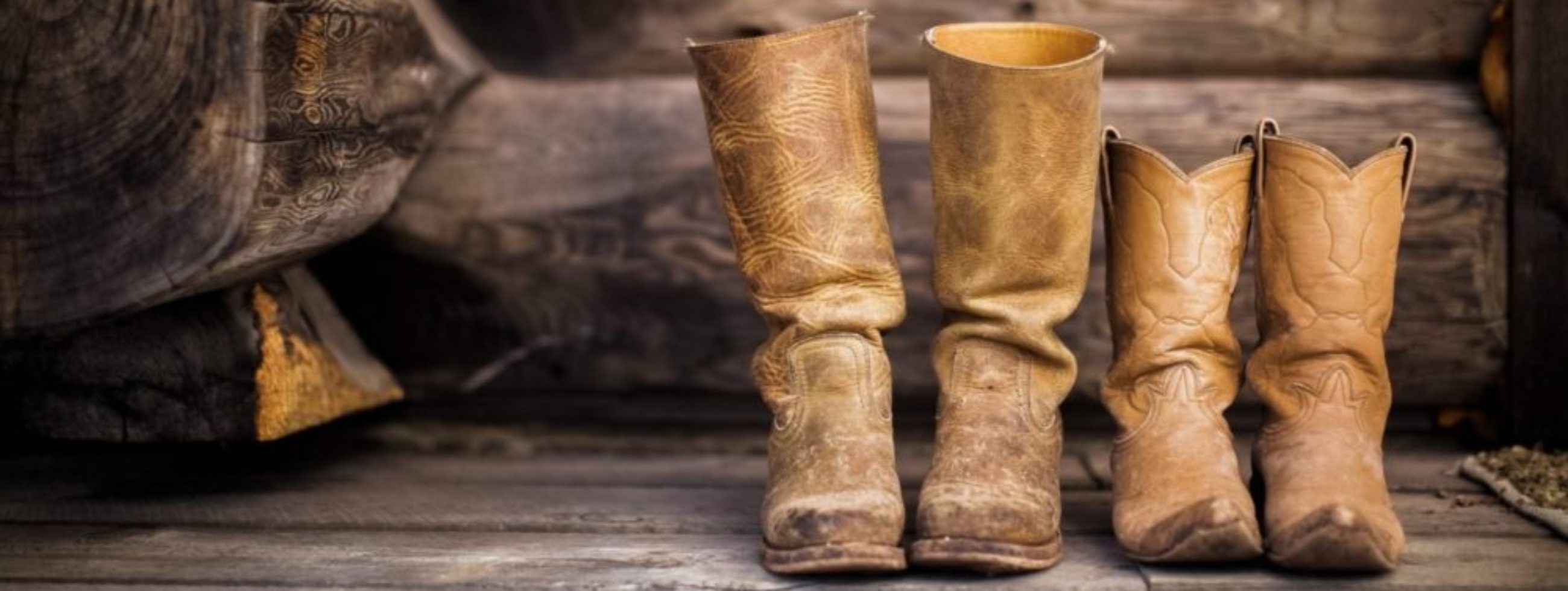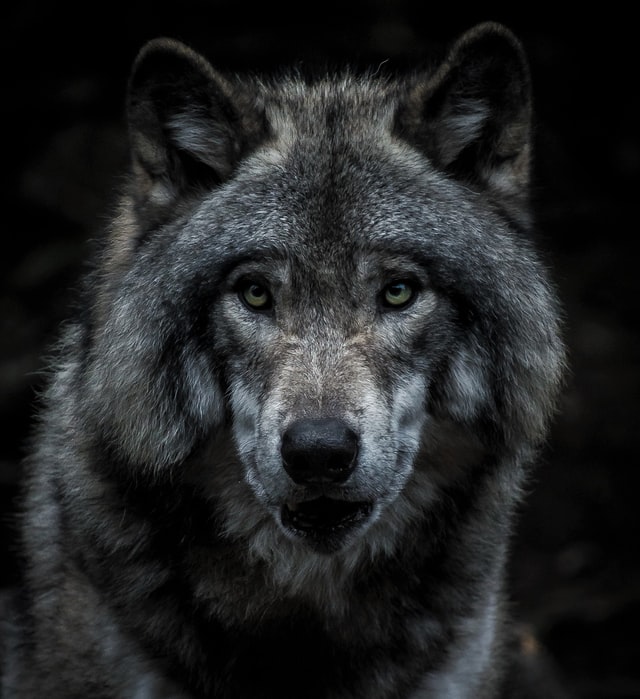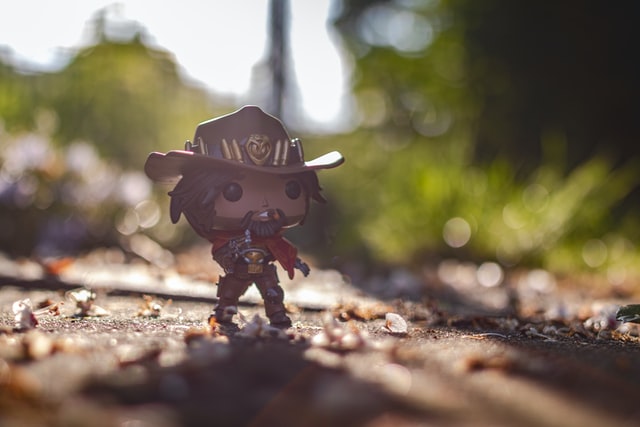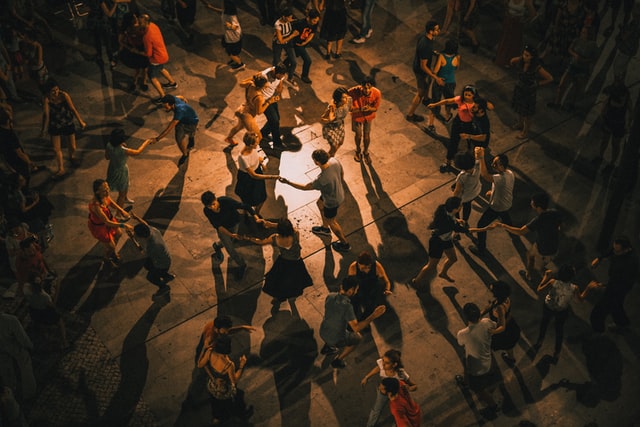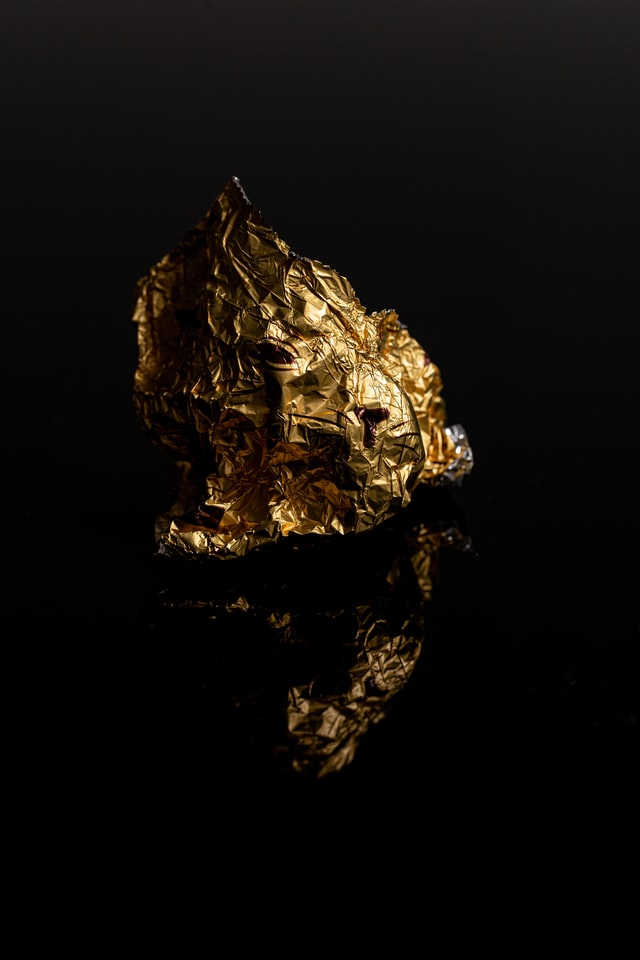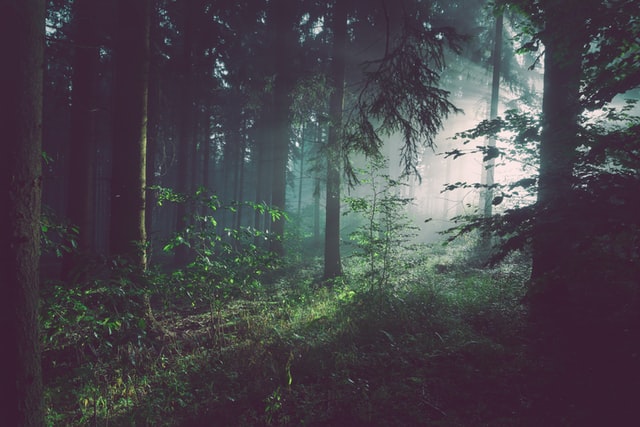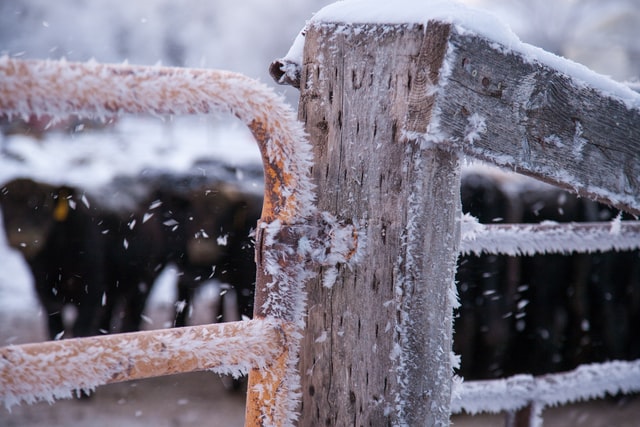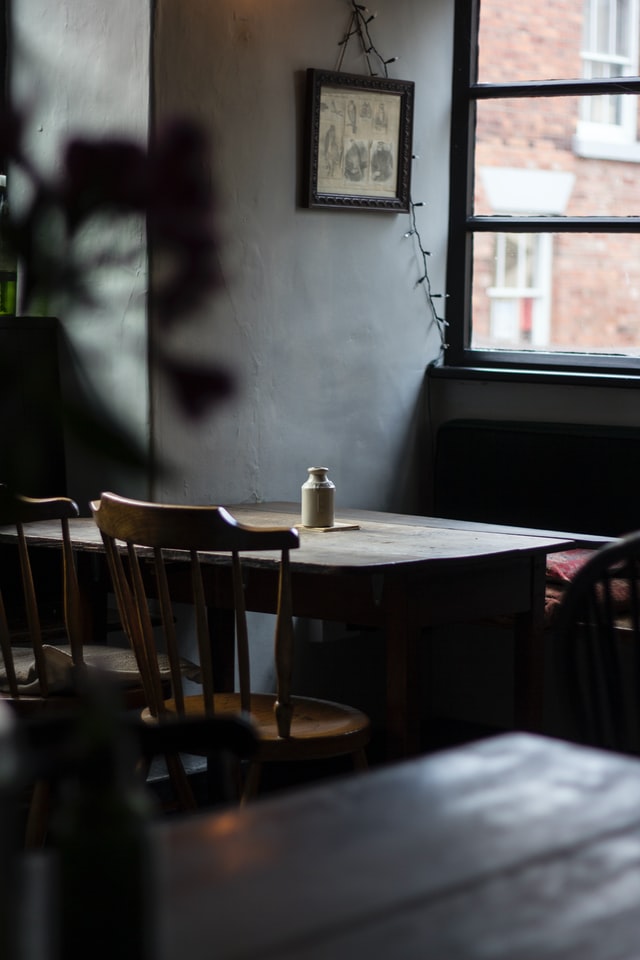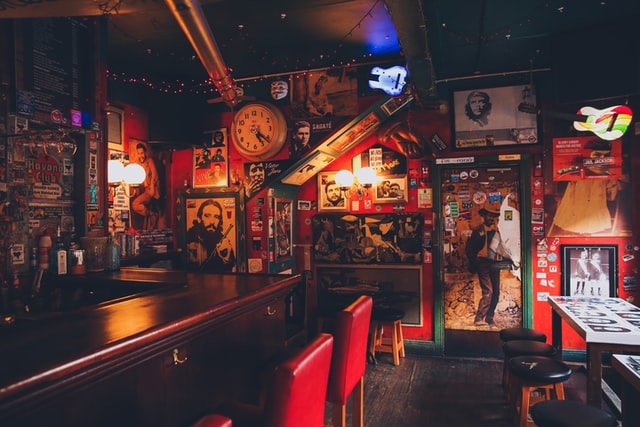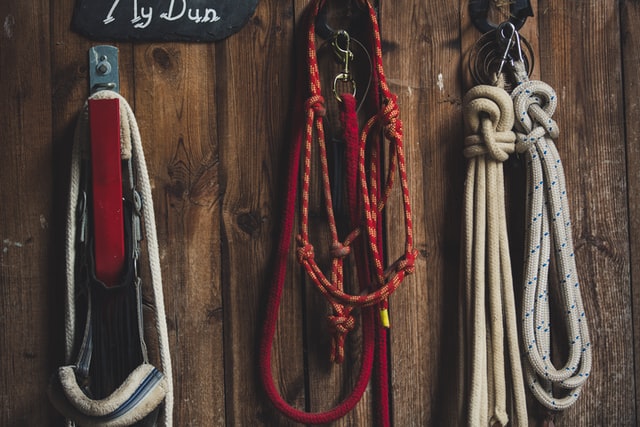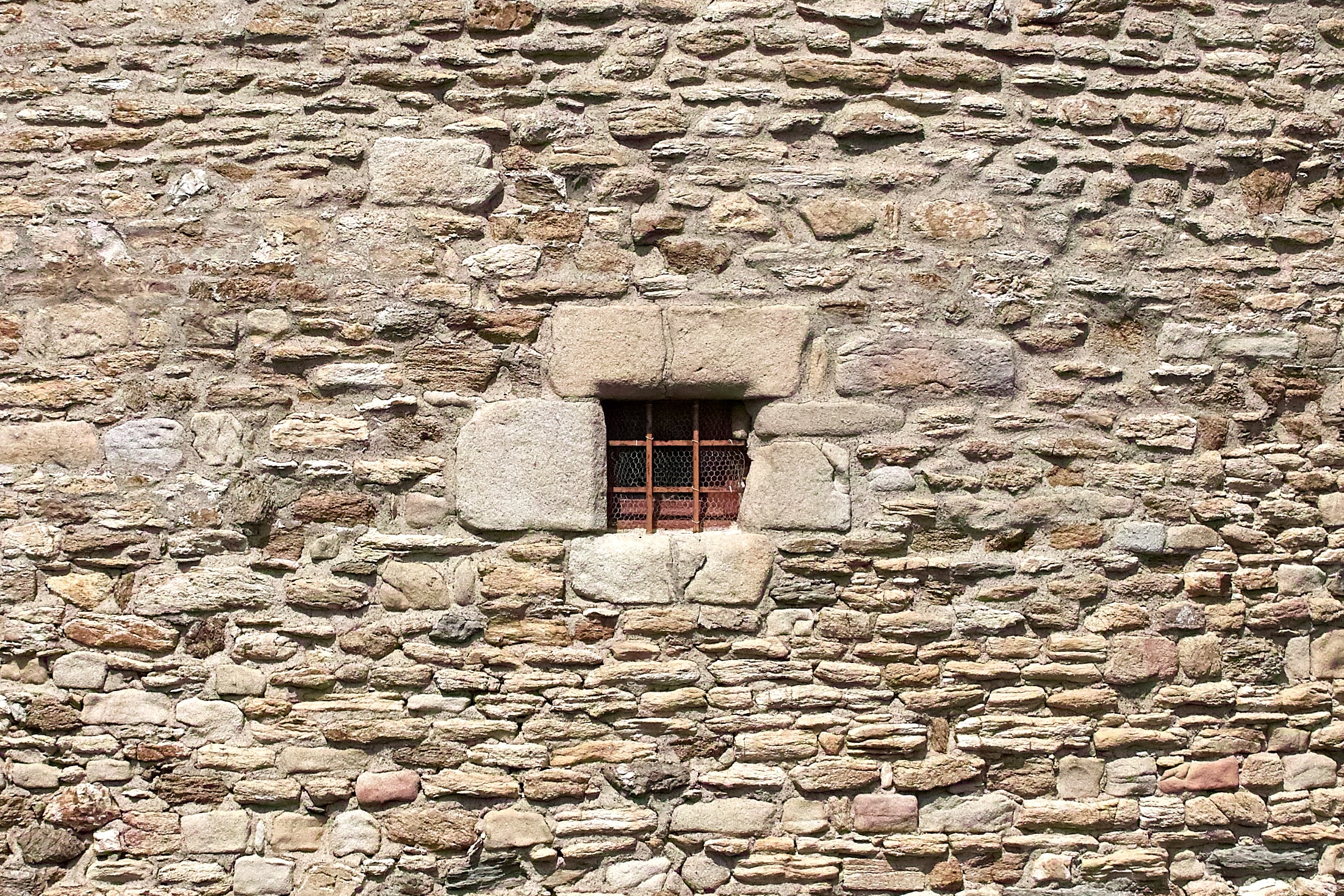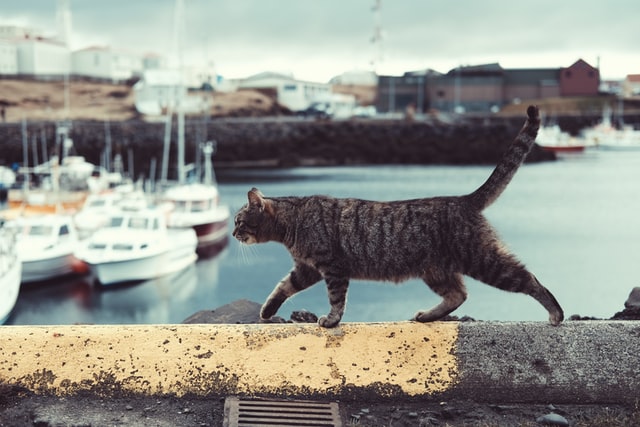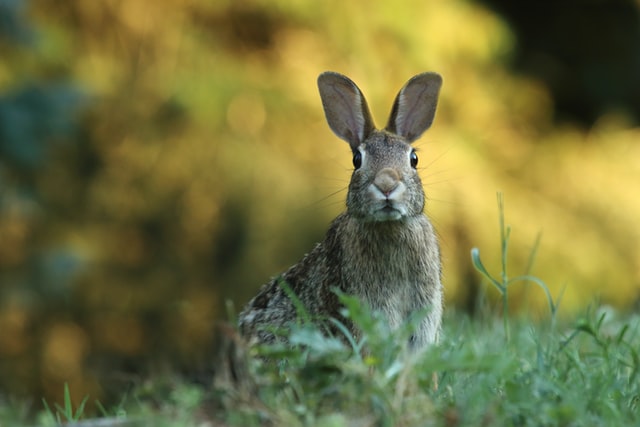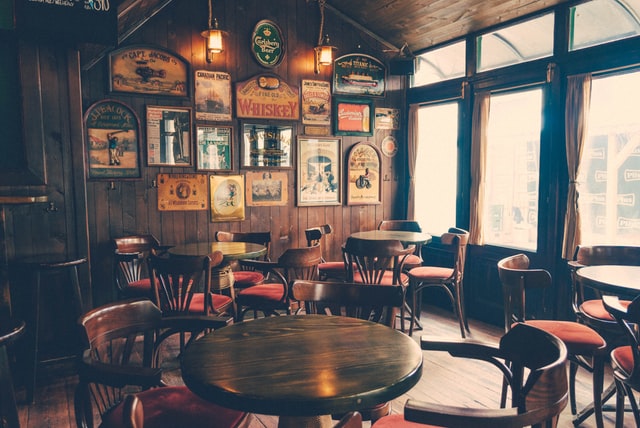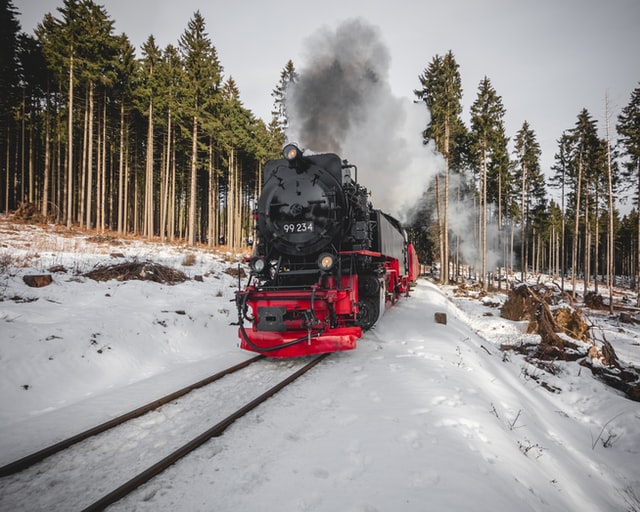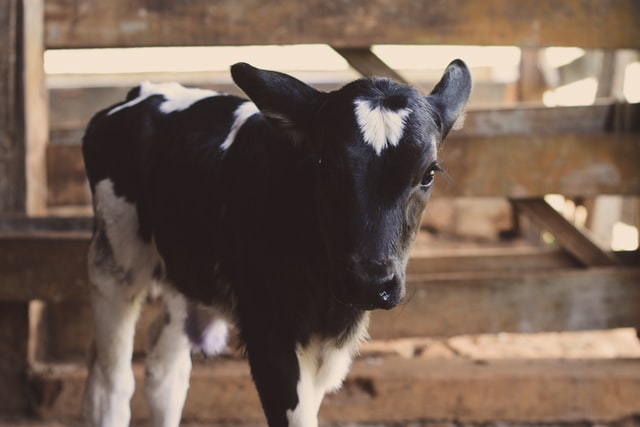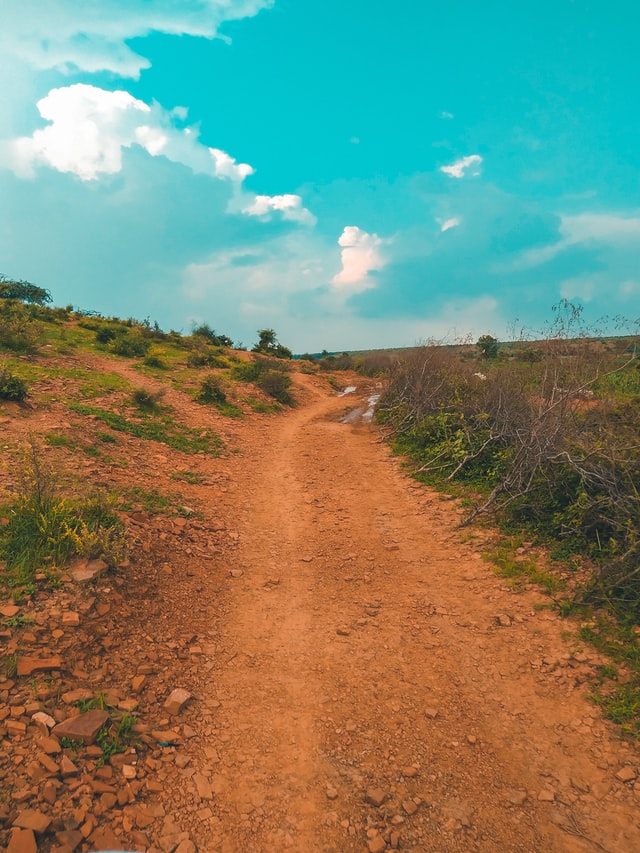A FIRST BOOK
Shepherdstown, West Virginia, 18…
1
On they went in, the intention was to kill, no mercy, and the bullets piercing fleshes, breaking bones, young and elders, whenever they saw them running projectiles followed them, and the horror of whimpering and mixing of lascivious laughers conveyed the impression being carried their death from these fragile young girls hidden behind the curtains, underneath the chairs and beds. There was no place to camouflage.
She could not be sought by the way they had been acting since they had come, talked with rage with Mr. Ruffalo, who pressed his strong hand covered with soil and blood over his wife’s chest, to save her life; then grasped an old shotgun, listening no more to the intruders, to send them to hell. One of them. Gerald Goldsmith, a young man about nineteen, still a baby, but the expression of a cold killer, held him before him, with demure giggle, putting five bullets into his sixty-five-year body. Two joined him in that game of fastest draws, talking with his lovely wife, expecting them to leave her alive. They didn’t, but she looked up at them accusingly. “You’ll burn in hell,” she said valiantly. A concerto of slugs reached her. “There’re more,” one of the triggers, Albert Leyna, said. “An Indian girl, perhaps.” ”No. He has six daughters. The younger one.” “Where?” “That’s missin’.”
At the last moments they found her, trembling and she was embraced herself with the Indian young girl, and there’s no use making a fuss, because they aimed their pistols to them. “What’re we gonna to do with her?” “I could do plenty things on her.” “Oh, see. That’s time out.” “Burn it!” A voice echoed down to the hallway, even when the bodies of Olivia, the Indian girl named Enola, Marianne, and Sheila were still alive, having two of them howling in pain. “Let’s burn her.” “Her life has no value.” “May her body rest in peace before I take from it my pleasure.” “Well, it’ll be for a second.” They tossed coins in the air. Chito Lapid, Ollie McLemore, William Raths, Eddie Laughin, Milton Labertson. Chito Lapid won. “Ya’ll be always a cheater.” Chito grasped her and tossed her over to the right side, making a lot of fighting, screaming and begging, which, Enola, already wounded, working herself bravely to protect her as her brawny skin from her pierced long white robe broken lose, and there was a temptation in front of these unhealthful men. “No!” That girl was a tiger, fingernails came to Chito’s face and pulled out, and this beast roared, her action making him to rise. “Fire! Let’s go!” The first layers of fire, taking the second column of the dried wall, holding mordaciously the room where Enola and Olivia were, one by one, irretrievably, the fire eating that part of the parlor. “Let’s carry it out. This may cost some silver in Loyan Hill Crackers.” Howard Todd, with his two hands in full, gestured ahead, jogged across the house, not fear about the fire. He turned his head, watching Larry Gandara, a mix blood, and Samuel French and Robert Freehill, almost holding his pants below the knees, skulked along the corridor, then a fearful scream, a girl stumbled with a Bible, wretched with a pistol. Now upset and helpless, cursing to each one of them. He did not wait. A pellet pushed her backward, and the body fell under the ground. The tongue of fire licked that side of the third room and to the spacy kitchen-room area, while a last call was heard from outside of the house, and the voice was belonged to Roderick Fletcher.
Rudell Brinckman, Timothy Arcway, Lane of the Fu, Mel Louram, Lon Lopez, and Dwight Mitran climbed on their pure blood mares.
Roderick Fletcher, pulling away his magnificent horse, peeped at the house in fire as though looking through it and into the rooms of his mother, father, his sisters and brothers, now dead in ages and buried in his family church below Organ Moon, making in the hazy past which occasionally flashed unclear Joseph Gilberg Ruffalo had to do with those deaths, if Father Phillip Perkins had been the generator between Stephen Matterson Wetzer and him.
He pressed his lips with a brutal grip gazed down at his men and then away.
“We’re goin’ to collect our money and everyone will be free. And there’s no bless any longer.”
He kicked the sides of the horse, and the animal galloped ahead. At a leisurely pace, they followed him, down the slopes from the south cut to the open south road, to a long road covered with dead crickets and birds, to Hudson City, passed the new construction of the Railroad Station, to the luxurious mansion of Stephen Matterson Wetzer. They found him surrounded by his two sons, David and Karry. Below the spacious porch a solid line of entourage. Holding the pistols and rifles, elegantly across the chests, they stared at every move.
Stephen Matterson Wetzer, a self-player of the new Hudson City, a man of many fingers, had been expecting him sooner or dead, as he had planned it. He did not speak. He raised his hand. One of his elites, Tung Lonsberg, stepped back from the corner. He brought three bags filled with golds. He tossed them several feet from where Roderick Fletcher’s horse was. He could see by the nervous blinks of his eyes he did not like such attitude of Tug’s manner, making now a mocked expression across his face. Snappily, Roderick’s right moved. Two bullets hit Tung Lonsberg’s holster and naked away from his pistols, he was at mercy to Roderick. A single bullet directly to his forehead and sent him to death.
There was a fretful moment among them, but Roderick and Stephen were cool, watching each one their weakness. Stephen smirked.
“That will be the last time I’m going to see you, Mr. Fletcher.”
Having a moment of contemplation over the new train station and the church, the new construction of the new building of City Hall and others, Roderick said mysteriously, “One day we will be linked somehow.”
As important as he was, he called Mel. “Take the money.” Then, the glimpsed at Dwight. He nodded. Dwight moved his horse to the porch and from the back of the animal he removed five heads inside a bag and tossed them before Stephen. Roderick looked fixedly at him. “You never play fair.”
He pushed the stallion backward, now arrogantly, fearless, he tipped the horse below, and he strolled out of the Stephen Matterson Wetzel’s territory.
“Fool!”
Father Phillip Perkins made his appearance. He turned to look at the distance where Roderick and his pose had disappeared.
“Has he any idea what I did?”
“He will never go to figure it out.” He stepped further. Only God will.”
2
Gradually melting by fire, the house could have created the impression that the entire foundation would come down with the last stones.
On the netter side of the second layer as if a wild dog cub had done, Enola forced herself up from the afire wood of the floor and flipped her body around the ashes. One could she was in the downstream. She moved to safety. Her back scorched, her hair was gone, which she dismissed the possibility her adoptive family, her father, mother, and her siblings were alive, and thinking she might have missed one, her face twitched.
Enola got to her feet and stepped forward. The igneous smoke bear down her body, but she did not give up. A body faced the steamy ground of the basement. She made an effort and turned that body. “Olivia?” The girl did not respond. She saw across the chest this an old black Bible, intact, except with a hole into it.
3
They spent the whole day at Rhonda Chile’s barrack, a Negro gathering neighborhood to the pony white delivery, where she was cooking and carrying goods to the mine workers several kilometers to Luna Post. Protected but isolated by the superstition of Rhonda Chile, a New Orleans resident of the North, and the Jamaican woman by the name of Latrice Paynes, with pig’s fat and horse urine, began to cure the girls and to alleviate their massive burning, but they seemed to divide their faith that the two girls would die eventually. Contrary to law and custom to see otherwise, Fong Fei-Tseng, a lonely healer, living in Boyle Waters, and yet miles apart from Hudson City and Shepherdstown, took them with her. It was the eve of China Dragon. The next day, when the girls were supposed to die, in accordance what the Negro neighbor Tomasa Smither had told them, Fong made herself the promise not return to the Negro place.
She put one of the girls on the grassy bed, yielding any superstition of the underworld, and cured her body with garlic roots and poisonous mushrooms and with the warm body frogs. To Olivia, she had the same remedy, carefully applied to her face, her body, and her pierced back. The cure was long, and she did not mind, remembering if she were there, a fraction of seconds earlier, when her daughter was still alive, she would able to see her next to her. Not unclear her intention at this particular moment in front of the girls, she understood good creeds would come with good results.
It grew very cold that evening, but Fong was prepared. She had warm garments for Olivia and Enola and good nutritive roots and vegetables for their healing process, and for herself, what she needed was a heavy wrap, which she found from buffalo’s skin, and that would be all.
During the night, she did not go sleep, watching them, silencing their pain and their fear, thinking about her daughter, and thinking again that good creeds would come with good results.
4
On the day of the 20th of May, 18…, a little before nine o’clock, she had not yet recollected the eggs of Kusl, at the flame of the door of the house, Olivia, almost naked, watched over her walking to the well.
“I’m hungry.”
She halted walking across the terrain. She turned and her eyes glittered with inner light grinning. “Oh, yes, yes.” She came over to her as if she was her young daughter, she brought her chest. “Come, come. You’ll have your food. Come.”
She brought her inside the house, making already plans, as Enola, a little shaking, stood across the corridor.
“You two come to the table and sit. Don’t be shy, come, come,” Enola gazed at Olivia and ran next to her. “I’m going to find some clothes. I’m sure Sun Chin’s will be perfect about your age, twelve –”
With high color, flushed reappearance, carrying Sun Chin’s clothing, she could not hold tears coming out from her eyes, and she did not want to cry before them, not at this particular moment when the girls had survived so tragically on which there would be a story to tell. The girls, feeling that hidden pain, not let anyone to tell them what this woman felt, without even talk, ambled to her, and they embraced themselves around her, and they, too, cried.
A little relaxed, Fong touched her chest, and she said, “I Fong Fei-Tseng.”
With inherence words, and with the same gesture, the girls said their names.
“I’m Olivia.”
“I’m Enola.”
“Good, good. Now, I’ll make breakfast, and later I’m going to cure you again.”
5
There was much to worry a good woman in 18…. Even though she did not have gold, but having two stunning young women living with her in this remote plot of land, she had to be careful. Fong’s mind was setup with the true reminded her that she had to speak with the girls and she did that evening after super. She told her to the girls. Fong’s story was terrified. Those terrifically details were chills. The details were not to make the girls shaking, rather to have a picture about the truth world where they lived. The girls felt every word of Fong about her daughter Sun Chin. They raped her, cutting in pieces, and they made her to watch until end of that sick action of theirs, and while her husband, in pain, was losing the ground from his open the veins, they killed him and left her to live. Ending that horrific experience, she was strong enough not to cry this time, not sharing weakness in front of Olivia and Enola. Feeling what happened to them, they did not lose a beat before Fong who had saved them and gave them a second chance to live.
Olivia stretched the hand towards Fong and grasped her hand. “God already has given me life to ride on them, Mama Fong.”
Without saying a word, she got to her feet. She walked to a wall and opened it by pulling one of the layered lumbers. She pulled out a medium coffer and backed up. She deposited the coffer on the surface of the table and opened it. She brought up a pair of Colt Paterson revolvers.
“They’re yours.”
6
Town of Crossing Verdes. Its main street, a long, powdery road. It crowded with horses, wagons, and running cattle. On its steady course of day, it would be until midnight, expending at Berth’s Tavern the last silver coins and having pleasure with the girls of Madame English in the final hours. Fong’s wagon pulled by two mules, headed to Browne & Sons store in the middle of Rocky Rodeo. The passengers, Olivia and Enola, in their fourteen and sixteen respectively, relaxed next to her. They stretched their necks feeling the movement of the town, scanning of those unknown faces they still had in the mind. After Fong pulled the wagon before Browne & Son store, she gestured to the girls to get off. A dust wind sent them to cover, then moved to the store.
The store was almost empty. A few of cowboys and drifters dealt with the high prices on boots and hats. Mr. Browne was apart, skinner and large, about sixties, watching curiously the Chinese woman entering with her two young companions.
“How do ya to do, Miss?”
“It’s mum you should address, Mister,” Olivia said, giving such privilege of attention to Mama Fong.
“I apologize. I figure it was, but –”
“But what?”
“Never mid.”
“You carry bullets?”
“Oh, yes. How many?”
“Seventy boxes.”
“I reckon, I have,” said he, calling one of the boys, “Bruce.”
“Yeah, Pop?”
“Bring 70 boxes of cartridges.”
“Yeah, Pop.”
Abandoning all attention about the girls, who, carefully wrapped with scarfs around the faces, making hard for him or somebody else to see.
“I do have the latest Henry rifles and the six-round .36 caliber and colt .45.” He moved to a protected vault. “Boy, help me here.”
The younger of the Browne family, Gregg, who had discovered the scorching of Olivia’s face, feeling for them not as a benevolent admirer, could not see whose beauty would have disappeared from them; but it was disgusting from his point of taken.
“Boy, and you with me?”
“C’min’, Pop.”
They brought out a selection of weapons, the latest of colt revolvers, Winchester models, and double-barreled shotguns. While his father was on business with Fong, trying her as a solid customer, Gregg asked the girls what happened to their face. Olivia and Enola ignored him, especially Olivia, who had been paying attention about Browne’s explanation about the latest guns, especially the six-round .36 caliber revolver and the colt 45.
“You heard me both of you, and I reckon, I want to know.”
The remark deserved no reply and got none. Already, his second brother brought the boxes of ammunitions. Fong gazed down at the latest weapons, and selected the six-round .36 caliber revolver and colt 45. Pistol, two each one. Happy for a good today selling, Mr. Browne added a couple of cartridges and a box of candy for the girls.
“Ah, I must forget.”
“What it is?”
“Would you for any change have a self-shooting book?”
“No, but I have the 1800 Gentlemen’s Handbook of Etiquette and Manual. Among other things, it explains in details how to hold a sword, a knife, and of course the English and French pistols for war and how to shoot.”
“Can I see it, please?”
“Sure.” He moved to a library and brought this huge 1760-1720 Handbook. He put the book before her and fingered to the technique pages how to hold a pistol, illustrated and explanatory footnotes.
“I take it.”
“Oh, yes.”
“How much all of these?”
Considering the new weapons, Mr. Browne made his calculation, and it came up for a total of three hundred thirty-three dollars and sixty-three cents.
“I’ll pay for gold.”
Fong opened a well-small purse made with rabbit’s skin underneath her long dress. With expert’s touch, she slid onto the surface of the counter five pieces of gold. The honest man quickly took a piece and put it under a telescope, then smiled broadly.
“You seem to know the value.”
“It should be good then.”
“Yes, yes.”
“Girls, let us take these to the wagon.”
“My boys can give you a hand.”
“We can manage, Mr. Browne.”
Outside of the store, she took the opportunity to buy clothing for the girls, underwear, shoes and hats that the girls appreciated it very much.
The road got easier as they headed back home. The wind was sweeter and the passage was clear down Wood Path. At home the girls jumped to the ground, and the excitement of the top of trees with birds and hunters, they could not wait to try the new clothing. They undressed before them and helped for the clothing. They saw the clothing fixed as well as the underwear. There was always a darkly expression across their face when they saw their burned body or the marks of fire across their face. Calming themselves with touch and words, and whispers of what they felt, they began creating a seal concatenation among them.
“I will not stop until I saw them bleeding, Enola. Each one of them, and I will have any mercy.”
“I’ll be always next you.”
“You should. You and I for life.”
The following morning, after a good breakfast, the first technique of shooting, of holding the heavy gun, and squeezing the trigger was hard. Though the very patient was a moment of learning, which Fong Fei-Tseng, whom both girls had created a unique bond with her and quite so, opening to each their heart, their pain, listened to that what she had been saying.
She knew to teach shooting and killing was a different concept. There was no argument about the best sign of this concept, which offered no dilemma whether for Fong or whether for the girls.
For days and days and for weeks and weeks Olivia had reached the amidst movements of the guns, first one and then the second, which Fong and Enola recognized, she had begun to master, and the only break in her days was when they changed bullets for the next section. That was, Olivia did sometimes ten times in the day, reaching now hundred times in the week, and three thousand times in the months. Faster and harder, and it closed to the heart in which the heart was hidden among the leaves and woods. She started doing with difficult shoot, in night, a light only driving three meters – four, three, two, one until she reached, with precise movements of her hand, to one minute, the target. But Fong made it hardest, in a second of moving light or in motion, such during cold, hot, or when she was sleeping, or speaking with Enola about trivial, or from the woods, running over a horse, giving her no time of choosing, for she was galloping three hundred yards or more. She would hit it, as she would say, shot, and a most time she had taken her out of balance, Olivia was ready, so Mama Fong would do everything to catch her off balance.
She could not.
Enola was her turn. In knife she proved she was able to hit any target. She was indeed good with knives with so much of it as Olivia was on her guns. Both girls grew as one, whose beauties for which their scars of burning faces, seemed to disappear slowly, except the ones over their body, that were still scorched.
One night as they lay in their bed, Enola said to Olivia. “Don’t you think one day would we find peace, love, or to find someone to tell him our story?”
Olivia rolled over her right side, and she said about dreaming.
“One day, Enola. Mama Fong says we aren’t cursed by bad spirits rather by good ones.”
“I hope so.”
“One day we will give peace to our mom and pop and sisters.”
“We will.”
“Good night.”
“Good night.
That day, when everyone was sleeping in the house, Olivia stepped out of the bed. She took the Bible with a hole on it, and she came into the porch. She moved a little far from the house when she was capable to see the moon, and looked up. She tried to find someone up there among the stars or in the moon. After a long time of waiting, she said quietly, “God, take care of mom, dad, and my sisters,” and she added, “Take care Enola, Mama Fong, and me, too, okay?”
In the morning as it was a habit of her, she cocked the breakfast for Olivia and Enola, giving instructions to them to feed the animals and be careful about the drifters and unknown faces before she headed to work in the mine in the far valley and went down into the working room, to where she had to punch a card in front of Jett “
Fat Joe” Holt and to get the mine tools to work below.
She held this small bag and was soon had been caught when she was hidden it under the second layers of the dress. One, Theodore McDowell, had caught her second movement. One by one he told to Jonathan Marty, Glen Hurtado and Ngo “The Mute” Ong what he saw. As the call of working echoed into the earlier morning, they watched Fong closer. Unluckily enough, they moved her to the rollers, so there was an end of the watching until the call of ending shift would take several hours later.
Ending the call, after she had collected her ten pieces of gold at Jacaste’s table, the accountant of the Matterson Wetzer, thinking to buy a pair of knives for Enola, she headed to town. There was a chance she would be back on the time to see the girls. So, there she was galloping down the road. A bullet hit her horse, and not dead yet, and it was the first of its kind, as Theodore and Jonathan came out behind the bush. Glen stood up on the top of the hill and Ngoc ambled along the edge of the road.
Fong was able to move her body, but she could not go anywhere. She saw them coming and she recognized them.
“We saw what you hidden some small rabbit under your skirt.”
“You’ll find better virgins than me in town. I am just an old woman.”
Jonathan could not hold back. He triggered his long .45 colt. Fong’s right arm was gone and sent her into a paramount pain. “Glen, find it.”
Glen retrieved his mountainous knife and bladed upon Fong’s dress. He found the small bag and with the knife made another cut. He tossed it to him.
“You’ve a good reputation on keep it some places, as I’ve said before. Don’t you have more?”
Snarled of agony spreads over Fong’s face, “No, I don’t have more.”
“You should have,” he said. “Mute, changes horse. You pull her in the wagon and let us have a ride to her hatched house.”
7
Olivia and Enola weren’t worry about Fong’s absence at this moment. The sun was still hot over the hills and the day was marvelous. They had washed all clothes either from Mama Fong and theirs, and they were in preparation to make easier for Mama Fong what they were going to eat for dinner. Maybe both agreed to eat rabbit and dried snakes that Mama Fong had on the stable, or maybe they would agree to kill a chicken, and having a good dinner for a chance; yet, to this, Fong sometimes found this special dinner for special occasion, and both young wondered what they would do.
“She’s here, Olivia,” Enola said, distinguishing first the wagon of Mama Fong. “But she isn’t alone.”
Olivia jogged to the window.
“I got that feeling she is hurt.”
Without waiting, Enola withdrew from the window, went to the kitchen, took a bag made up with fibers, and quickly as she could, she brought from the room the pistols. She put them into the bag.
“They are in there.”
Fearless, Olivia reached the door and opened it. She stepped out of the house and edged herself along the porch. First, she recognized the pulled horse was not belonging to Fong’s wagon, and those faces were unknown to them. It made Olivia to realize, evil had touched once more her life and the others whom was around her.
“Who may you be, sirs?”
“Your pops from town!” Theodore said, laughing.
Olivia’s eyes spotted from the wagon that blood and Ngoc the Mute Ong pointing a rife someone on the bed of the wagon.
“Mama Fong, is you in there?”
“Oh, is she your mam? I can’t see any feature of you look like hers. What a shame! She looks to me an Indian girl and you a white girl. What do we have here, a foster bordering school? Where are the others?” As Glen Hurtado was about to get off the horse, he halted. He saw the kitchen bag for eggs had fallen in the porch and appeared those pistols. “Oh, damn. Do you know how to shoot with these, Miss?”
By the time the last words had been formed inside Glen Hurtado’s mouth, a bullet pierced his right ear, a second broken his jaw, while her left-hand pistol had targeted Theodore’s forehead. A single bullet jerked off from the horse. Ngoc the Mute Ong would choice to kill Fong but a kitchen knife reached miraculously his fingers holding the rifer, and when he tried to change gear, a kitchen folk disappeared through his neck.
“Enola, Check Mama Fong.”
“No!”
Jonathan Marty hopped up from the wagon, missing Enola, shooting, and Olivia’s right arm twisted, elegantly, she pressed the trigger. Jonathan crushed ungraciously in the terrain, not yet to figure out he had been caught in the air. Cold like a stone, Olivia got up from the ground, peeped over the man by the name of Glen Hurtado, who was still moving, putting a bullet in his head, and halted next to the wagon. Mama Fong smiled at her. In hurry, Olivia brought her to the house with the help of Enola.
“I don’t want to die yet, my girls, understand?”
“You would not.”
“How can we fix her?”
“I still have life inside me. Go to the kitchen, Enola, and put water to boil. From these vases on the right, getting from each one a spoon and pour all of them into the water. Can you do that?”
“Yes, Mama Fong.”
“Go, Enola. Go. Now, Olivia. You’re going to remove some powder from these cartridges and spread over this arm, and you will fire it.”
“Could be another away?”
“I haven’t time for a second option. I’m afraid you have many but this is going for me.”
Each girl began to work what she had told. Enola was doing well and what Mama Fong had told her, teaching some Chinese words here and there, she was following precise her instructions. Olivia, on the other hand, had a dozen of cartridges removed from the pistols and spread the powder over the bloody joints. She fired them and powder began to cook flesh. Mama Fong’s face turned red and white. A moment later she had passed out.
Week days, Mama Fong received her adopted daughters in the room. She was healthy and happy, making them to sit. For a moment the face of Fong had a double dimension of being alive and grateful in finding them.
“I made it possible, didn’t I?”
“Yes, Mama Fong,” Olivia said.
She took from the other side of the bed, a well-documented portfolio and handed it to Olivia.” They are the people who killed my daughter and my husband.”
Olivia took the portfolio and read the names. There were seven individuals and each one of them had portraited by skillful sketcher.
“We’ll find them.”
“It will be unfair what I did but I accomplished my love to each one of you. There are more.” Underneath the blanket, she produced more documents. “My husband was a calculated man and with eye on the future. I’ve been working in that mine if one day I found them. It never happened except you two. Take it. Soon, I will leave to San Francisco.”
“How? When? Why?”
“This isn’t your concern now, Olivia. By the time you done with this, both of you are going to live well.”
She opened the document, not familiar about transfer and heirs, Olivia understood there was a kind of settlement.
“Are you a rich woman, Mama Fong?”
“My husband was, so half of this is for both of you. You need money to move around, and be able to find those killers and those who make you to wait so long. You are free and independent.”
“How can we find them?”
“There is an address on that documents and there would be a way of sending money when you need them.”
Olivia and Enola stood. They came over to her and kissed her.
“It looks us as we’re blessed.”
“You are.”
“When will you leave?”
“No, I don’t want any one of you see me leaving. Let’s make a transaction of living.”
8
Palm Vista, WI, May 1, 18…
Gregory McLoud was a cattle and horse thief, a murder back to Oregon, and a wanted rapist from West Virginia and Kansas. Recently, he had killed three innocent men and a bartender at Solar’s Bar. Bernard Colclough, a former Civil War soldier and Indian killer, was there, laughing and stealing what was belonging to them, and Oscar Morena, a Mexican revolutionist of Tejano’s holders, made up the group of Gregory. There was also Nancy Glad, who, besides Gregory, holding visibly, a single shot revolver, could be added to Gregory’s world. The first two had to do with Sun Chin’s death, except Oscar Morena. They were still active along these parcels of Wisconsin.
Each one of them joined a hot meal at Batt’s Bar and with plenty coins, they seemed life was good as it could be. It took five weeks to find them which Enola had become very sharp in finding people. The telegraph from the White Store’s Communicator, anticipated and confirmed, come three days when Olivia and Enola reached the City of Berg. It addressed to Mr. McLoud, Augustin, a lative of McLoud & Family and told them to tell to the server do not sent any correspondences. Here, Mr. McLoud said pathetically simply, but Gregory cursed it for the hatred of his father. A week later, they tracked them first in the City of Abyss Coal and a second time in Arpa, and then here in Palma Vista, population of five hundred, mostly cowboy families, farmers, and runners.
Lodging at Dropp Hotel, a few houses from Batt’s Bar, Enola helped Olivia dressing. “Will you carry the pistols?”
“I’ll use them when we arrive. You leave them in the purse. It’ll make a drastic effect. None men will expect that.”
“Then this French purse will be perfect.”
“You bought it for your knives.”
“I feel sexier closer to my skin.”
Both women smiled.
Enola picked up a hat from its case. She gave it to Olivia. She put it on and modeled. “It’s perfect.”
“That gentlemen from Kansas chose it for you.”
“Yes, he did. It’s so bad I didn’t catch his name.”
Culson… Martin Culson.”
“Oh, yes.”
Without looking at Enola, she moved out of the room. Enola followed her. She closed the door behind her. She joined her in the lobby. Keeping to themselves, Olivia and Enola came from the lobby into the narrowed but long porch. Carefully, they reached the corner of the hotel, and they stepped into the dust street. They crossed the street and headed to Batt’s Bar. Daddies and young men admired at the austere expression of Olivia, walking besides this Indian woman.
They entered.
At the left, they were Gregory and his entourage. Olivia held several feet from the table. Nancy Glad stopped eating, and she had made her world by touched choices and that solemnly face did not fool her, she said, “Get lost. He’s taken.”
Gregory McLoud felt rewarded, a good-looking man in his own world. He made a gracious smirk; but Bernard Colclough wasn’t so sure. He got that strange feeling.
“Miss Sun Chin sends me from heaven.”
“Who?” Gregory asked manically.
Olivia nodded to Enola. She brought the colt revolvers from the French purse, but Bernard could not wait what this young woman could do, his revolver’s trigger sound. Knowing some possibility could not be perfect, Olivia’s long fingers found the revolver’s trigger guard, when she perceived the man would not wait. Without having yet a firm grip, she rested it on the flat palm of the hand and triggered. In a total surprise, Bernard Colclough jerked back. Oscar Morena saw the opportunity but Olivia had already the grasp of the pistol. She got him, then, while Gregory had hesitated a moment, glancing down at the young woman who was still shaking by such ability, a bullet sent him to the wall. Holding the two revolvers now around her waist, she shook her head to Nancy, then moved back her revolvers to the holsters. Nancy hadn’t understood the message – a single pellet pushed her back.
9
With the course of fourteen days Olivia and Enola lodged at the Ferry Blue Hotel in Ferry Blue City in South Dakota. The fur trade was part of Ferry Blue’s business, to where young and old White folks, Negros, Indians and Quakers would pass one or another. It was the toughest environment Olivia and Enola had endured. Life in Ferry Blue was most resilient, mightiest and slowest, where there was no sense of innocence or purity. A living in this borough was brutal and there was no word for women, who were making a living among these excruciating men, selling their bodies or working sides by sides with them. Many times, Enola had drawn her knife, to cut one or two. There was a man like Gary de las Lollas or Claun Sweetie Dibble, both trappers and buffalo hunters could not have no for an answer, so Enola had to send both of them to see a doctor several miles from Ferry Blue’s Office Fur, but unfortunately both of them died before they reached the doc’s cottage.
Most of time Olivia would stay indoor laughing on behalf Enola’s experience, receiving news from Enola, or watching the rain falling from the sky. Where, for a little while, she looked up Enola as a big sister, laying next to her, on account of having being so lonely and sad to the life they had chosen involuntarily. The sadness prevailed in few moments would heal for the time being and their life they had been chosen would subside along the way, and nothing would remain to indicate that the current events a mission must be followed to the end, excepting a noticeable moment finally had come that Rezon Hyman had emerged after all. Escorting by Glenn Kloom, and two Negroes, Rodney Chairs and San Onglis, they received new he was in the area.
The rain kept falling.
Enola, after she had narrated the stories and her experience what happened today, came over to Olivia.
“Do you want me to read something?”
As she was about to reply, she halted. Someone had slipped a note under the table. They knew the mysterious sender, and Enola hurried to pick it up.
“There has been another road assault at River Cannal. Seven carriers have been killed.”
“Don’t you think are they behind that?”
“There’ve been so far four times at different sites, but closest to the Maiming Shell. They seem so desperate.”
“Let’s wait a week or so. We’ll post ourselves at the corner of Hill’s Ear, to where the first robbery took place and those Indians were killed.”
On September 12, the rain stopped, and there was a beauteous day, but the ground was very impossible to adventure to the open land. For an account of what followed Olivia and Enola were indebted to hearsay to Sender Sha, they learned a cargo of fur from the other side of trail, north, that was part of the Ferry Blue’s trade, would reach this afternoon. Very earlier, not yet the light of the morning peeked upon the horizon, they moved to the corner of River Cannal, a place converted into dangerous realms, now, with the rain and snow, water was everywhere. As they gazed down to the watery passage, Enola indicated the sides of the abyss would be perfect.
She was alright.
They encamped there. Wrapped up with heavy clothes, keeping themselves warm, they witnessed the pulchritude of nature at first hand, and believe it or not, it was the first time they had seen such fascination. Toward the Ferry Blue’s passing, a dozen of horsemen and wagons galloped and waged along the road. Of course, Rezon Hyman and his men took it as an ambush, which Olivia and Enola watching the effective of his men, taking with them all the cured fur and more than $20,000 dollars from the USA post.
They did not move, excepting when the picture of Rezon Hyman and Glenn Kloom detailed what the document of Fong Fei-Tseng had been written. The other five included Rodney Chairs and San Onglis Olivia had dismissed them.
For a little while, he and his bunch took the road, then the trail of the river. As they went up, Olivia and Enola caught a momentary glimpse of Rezon leering through the fog from his back of the horse ahead like a ghost. They knew Rezon and his assemblage had a long way to reach the end of Blue’s Passage Olivia and Enola were half of it, and they would catch them first in the earlier light of the morning. They even took their time to eat some dried rabbit, bread and bean. Then they cut off the rocky ground, that was a junk of space below. They passed Maiming Shell, and safely, they had a good view of the land below. Hours later, they saw Rezon Hyman and his throng struggling to get this part of the parcel. There was an order. They abandoned the wagons. The cured fur transferred over the backs of horses and for a few hours there was a relief. That was enough what they had in front of them.
Rezon could not give up. A member of the herd complained, and a bullet reached him.
Hours passed.
Olivia and Enola relaxed. They watched them from the top of Hill’s Ear.
Tired and hungry, he called to rest. As soon as they ascertained the instance of the group, of course would not do any craziness, he joined with his second commander Merle Eryhs and Kan Rogers.
The initiative ceremony of food, then guards, who would be the first took place on Rezon’s side, Merle Eyhas, where he had all the goods and the money. Before being let to the trust of the men, among them Kan Rogers — such as the latter indication – give them a hope that tomorrow he was going to distribute the goods and the fur at Matterson’s Trench.
At this instance, one observant could have a picture of him. He would recognize that he was unrecognizable. Mama Fong or her daughter would have problems to recognize him, except the broken nose and that mole of the right side of the face. He was part of her Sun Chin’s death. That was he was responsible to the cuts, appeared to have before Rezon Hyman’s an act of power. During that time, he intended to be resolute by the act of mercy, which, in spite of him, seemed to come from the boss himself: Brian Hoos, whom he wanted him to elevate to the second rank. Unlikely to Rezon, Glenn Kloom was the hoarse chuckler, who had enjoyed the last drops of Sun Chin’s body.
Paranoiac and dreaded he did not feel so sure about that now, being the leader, he could be killed by anyone of them. The rest of the men had full asleep. And when they were awakened, they found no horses, just two women standing in front of them.
“Who are you?”
Olivia peeped at Glenn Kloom and then she peeped back at Rezon Hyman. A prolonged silence followed his preliminary examination, and she was wondering he and the others would remember the name of Sun Chin. A matter of fact, they did. Rezon was proud what he had done and he appeared to have a link to his past history, a way of power, domination. He and Glenn had told the story. They had recognized that brave Chinese girl, the small man with funny eyes and that woman who would give herself to them to let the daughter go. Each one understood such as Rezon Hyman, Glenn Kloom, Rodney Chairs and San Onglis, and the others thinking about it, no good would come from it.
Olivia separated the five people were not on Mama Fong’s list, not yet sure what she was going to do with men.
The unknown female voice then directed them to take steps forward and stop at the edge of the river – if they wanted to run – there would be one way to go.
Olivia took three steps forward and halted, watching Rezon Hyman, who did not know that woman was.
Each of them still had their pistols and there was once choice to make, an opportunity she was sure as herself several years earlier, Sun Chin would never have.
“I’m going to kill each one of you because Sun Chin.”
Death reached to their ears like an unwashed kiss. Yet, there was no nonsense from them. They knew whoever was before them could or could not deliver that. They acted accordingly to the ability to hit first, and they were fast, and ready to kill – but when Olivia and Enola turned back to the others, each one of Sun Chin’s responsible of her horrified death were killed.
“You aren’t innocent before God, and you have a choice to make.”
They peeked over at Rezon Hyman and the others, killing by single bullets and the drawing knives, hitting their forehead or their throat, difficulty targets. But human perception sometimes was hard to comprehend, except Kan Rogers, having no intention to draw before these unknown women, with except of Octavio Zelenki, Merle Eryhas, Rick Iskin, and Dellone Parr. Their cocky pride was too much, and they exchanged looks among them. They went for it.
Standing alone, Kan Rogers did not move. Olivia and Enola stared at him. First, Enola, who closed her cloak over her chest, and she followed by Olivia, retrieving her pistols to its holsters. Slowly, she backed up, and she joined Enola who was holding the horse for her. She hopped over the mare’s back.
“Tell me, where is Brian Garcia?”
Kan Rogers had problem to register that name, and when he corrected it as Bryant Hoos and then as Mario Zapata alias Brian Garcia, Olivia nodded.
10
In 18… were still the predicament of Indian lands, the disputed points of Tejanos, the native Mexicans, and the sixty-four thousand dollar question of Negroes and Whites had been still boiling. Upon that there were these Civil War former unionist and southern soldiers doing any kind of killing downwards San Jose, the land of Pan was large, and a dangerous place for a woman as it had been in Ferry Blue. The names of the young women, Olivia and Enola, had caught up finally the eye of Stephen Matterson Wetzer accidently, of course, not because of the description of them, who at various periods have occupied nothing than a remote sense of fear to the man. It had come from Kan Rogers, one of Rezon’s pack members, who delivered the news of the cured fur and the money and the lost, was struck, of course, only by the way these runners were killed down at Ferry Blue. He supposed to be happy, not worried, because his name and his past affairs had been tightened up for a good reason and he was now a businessman and admired. Curiosity and creed would kill him.
Stephen Matterson Wetzer made two fatal mistakes and that would cost him everything. Former Captain Harold Percy, head of his internal security, brought to the presence Kan Rogers, now as he emerged to know as an important man of influence in Virginia, the name of Sun Chin could not yet sounded inside his head, but Hua Chenyu-Tseng, the Chineman from the east and his clear vision of the water and the railroad station using his own people to make it happens and the land behind Joseph Ruffalo’s territory, two events quite different would fall over him from a different perspective, to Hudson City.
Imperceptibly, the two remote families came to his mind.
A diabolical plan of acknowledgment had begun cooking inside to the former unionist soldier Wetzer. He knew a little of history about the Joseph Gilberg Ruffalo family. His father, Carl Gilberg Ruffalo, was a darkly character against the powerful northeast Iroquois confederacy, where all Enola’s family was murdered, more than seven thousand. Not so proud in front of the 17… massacre of the East Canyon, but Carl Gilberg hadn’t much thought about that, rather after the India war ended, Joseph’s father had inherited a lot amount of lands several kilometers from the tribe territory. They described it as the golden mine. When Carl Gilberg Ruffalo died, the young character of Joseph Gilberg Ruffalo was established, but there was always a dispute in front of Roderick Fletcher and Joseph Gilberg Ruffalo families.
Evil could be very persuaded, Phillip Perkins, spirit father of Stephen, told him, when God began to play fool with people’s head.
It was then Stephen Matterson Wetzer struck with precision as a Devil Lord, killing every people in Roderick Fletcher’s family during a rainy day. A week exact, Young Roderick was not either a good boy, but attached to the old man’s dream. As evil knew how human mind works over damaged individuals, he held a private meeting in one of the chapel’s rooms in the back country. Stephen told him about his family killer and the reason. This irritated the young Roderick Fletcher could not see the whole picture. Thirsty of blood and persuaded by Father Phillip Perkins, which, for a God’s witness, insisted he saw all that happened in that rainy day.
Not yet ended up the drastic plan, he brought to it a dead Carl Gilberg Ruffalo, whom they had beaten him to death.
11
Now at the office, Stephen Matterson Wetzer’s past appeared to catch with him, but he was still safe, having a certain dignity and sanctify of a man of proper, and again, secured in his own world of money and privilege, which even the present event would distinguish him from Olivia’s knowledge that he had to do part or whole, her family death.
Yet, he had made a grave error to go after that two unknown women, and inquiring in the most courteous terms in the private security matter if they had discovered his past. That mistake notable building the fall of Stephen Matterson Wetzer and his entire family.
Unaware of this new development, Olivia and Enola left the train of Sola Station and at Travel’s Inn they bought the best horses of Burton the Horse Gaber and they headed to Arizona, then to the territory of Texas, to a place called El Matajo, the Pan land, where Bryant Hoos, Brian Garcia, or Mario Zapata had been living well for the past years.
For several weeks the shattered terrain El Matajo terrain remained deserted. So, it was the Town of Calinto, to where a fight between the white folks and Indians had been going on for months, with bloody causalities at both sides. A few kilometers from El Matajo, Olivia and Enola encountered another fighting, they almost fell into it. It was the Tejanos and Mexicans, then the Negroes and bounty hunters. At least there was a peace, but the tension was high. Olivia and Enola, dressing as prominent ladies from Baja California Sur, reached Tacas Tavern. The innkeeper, Señora Tulia Tacas, told them she did not have room for months, but Mrs. Dame Arrington would not mind to share her mansion with them.
Mrs. Dame Arrington did not have a mansion, but a brothel at the Mexican territory, El Creek, and she was not a dame, rather a madame. So, at El Creek, with a hundred of slaves and prostitutes, the old woman accepted the ladies, except Enola, who told Olivia that Indian woman must sleep in the room outside of the house.
“You have to realize I’ll not allow you to do that. Not you or any one like you, Madame Arrington.”
“This is my house and I abide my own rule, Miss…”
“This rule has changed at this particular moment, Madame Arrington – and please, don’t let me to do it in a different way.”
“Are you threating me, young lady?”
“I am telling you.”
Judging for a certain portrait on wooden still in the gallery, the woman was indeed a Kansas madame, a prostitute from her early days.
“I can throw you and your lover Indian out.”
Olivia’s hand crossed Mrs. Dame Arrington’s face and called one of her assistants to lock her in the gallery, telling her a new madame from Fresno arrived, and telling her also, those Negroes or young women wanted to leave, they could do so. When this settled, with her quick eyes, and cold expression, Olivia learned Mrs. Dame Arrington was a bad person, and Olivia was glad to make those changes.
Five days passed.
The rancho of Mario Zapata finally had been discovered, so also the presence of Olivia and Enola.
It was afternoon when Bryant Hoos alias Mario Zapata or Brian Garcia had been described. He was now a ranchero, a married man, doing well, whether with the Indians, Negroes, Tejanos or Mexicans, but his past had not changed before Olivia or Enola. There was no song of redemption.
Receiving them with a smile face after the credentials of Olivia as a widow was established, needing help to transport two thousand cattle from Arizona to Texas, he was happy to be chosen. A day later, he invited them to drink horchata and sweet breads in the rancho. Seating at table, Olivia womanly gazed at her pretty woman who had given him two girls, then, deliberately, into Bryant Hoos’ eyes. She spoke in Spanish, another ability of Olivia’s talent.
“¿Conoce usted Sun Chin, una señorita de Loyan Hills Crackers?”
“No. I’m afraid I don’t know. Is Mrs. Alvarado your real name?”
“Gregory NcLoud knew her, such as Bernard Colclough, Rezon Hyman…”
“Wait! Who are you?”
“Now it comes to you, isn’t it? She was the daughter of Fong Fei-Tseng and Hua Chanyu-Tseng…”
His wife, Maria, asked him what was going on, but Bryant made her to shut up. A past, independently of what he was now and then, reached him. His violent past was gone. He did not wear pistols and had a family now.
“You can do that – not in front of my wife and kids… not like this.”
“You seem to understand, Mr. Hoos, judging from your reaction, you know quite so what I am talking. That’s the truth. That past will be catching you one or another.”
Enola produced a knife, then a pistol. She put them on the surface of the table. Elegantly, she pushed them directly to him.
“Maria, entra a la casa.”
“¿Qué pasa, mi amor? ¿Qué quieren estas mujeres?”
“Your husband, “Olivia said in Spanish,” isn’t Mario Zapata. His real name is Bryant Hoos, and he is just a killer…a rapist…”
“No, he doesn’t. You’ve taken the wrong man. He’s Mario Zapata…”
Bryant pushed the table towards Olivia and Enola, not care much about his wife who had jerked back hard in the floor. In motion, Olivia and Enola hopped themselves aside. Bryant moved quickly to Enola and missed to grasp the pistol. Olivia rolled over the floor as she paid attention to Enola. She saw she was on her feet, then forwarded herself to Bryant, who, not seeing yet any knife or weapon on her, fastened himself to her. Enola passed by. Bryant’s right hand reached his throat and his eyes over her, not yet seen any blade in her hands, balancing to right, left, trying to say a world, but blood could not let him to do so.
Enola’s hand closed and brought a small blade to place.
They gazed over at Maria, then walked to the pole horse holder. They rubbed the horse over the neck and jumped on their back. By now a curious group of workers and servants began showing up.
Olivia and Enola changed horses at Colling Mouth Post. Twenty-three kilometers from Abigail Holder, having in mind to rest at Lodger Inn, a sleeping house along the road to Missouri, a rain of bullets welcome them. They did not expect such surprise, but they took it as a message that something had gone wrong. “Don’t you know where these bullets come from?” “No, Olivia, but we ought to drive the animals away from the stream.” “Yes.” “Look, a fort.” A strong fort of rock was ahead. They did not know if they would make it. Not know from where the bullets were coming, because of the dimly weather, a bullet hit Olivia’s horse. “Oh.” Her fall was painful, while Enola’s horse reached half of the road. A few yards from the fort of rock her horse had the same fate. Several feet away from each other, surveying at various points along the odd grounds and bushlands, Harold Percy and his thirty horsemen, the former captain of Mexican War halted the horse. He waved them to move towards an earthwork. He had taken a good sight of the land but he did not dare to move to the fort. Later, he sent ten cowboys to investigate, to where the ladies had fallen. They were the inner security of Stephen Matterson Wetzer and selected by Former Captain Percy. Knowing the game of the wild savanah warfare, they moved with their horses, then at foot. They strolled between rocks and bushes. Louis Carmal, Red Wright, Vincent Psom, and Ted Polls had been killed simultaneously with single bullets to their head. Behind the strong fort of rocks, Olivia anchored there. Holding a double-barreled, Olivia slipped to left a little, as she was unable to see her body for wounds. Below, Enola, now, holding a Henry rifle, feeling the pain of her sides, trying to move up, not knowing where Olivia was.
The cowboys. They tried to fire off their long rifle at the rocky fort, and could not, when Enola had that eye upon them. Five shots heard, and they were dead.
When Olivia heard the shots from where she was, carefully, not making too much pressure to the right foot, she crawled to the crust of the fort, and whispered. “Enola? Enola?”
“I am here below you and please, do no move.”
“Where are they?”
“Your right.”
They saw that tall figure of Harold Percy, unknown either from Olivia or Enola. For a moment Olivia and Enola thought they were deputies from Oklahoma or Texas, to what they did to the mean Mrs. Dame Arrington to let all slaves and most of her young harlots go free. There were no badges or a way to confirm they were the law-enforcers.
“Let’s take these bulls out of our away.”
“They’re twenty of them.”
“Well, it is our lucky day, sister.”
“Guess.”
A second ballad of bullets immediately echoed through the passage. Harold Percy gaited to right, which had probably seen another opportunity in taking these women out; but when his people around him had begun falling, and three more galloping besides him snagged from their horses, it was clear for him those girls knew how to shot. Narrowed his thought, he pulled back. A bullet pierced his left arm. One of his commanders came to assist him, but he found his own death. Harold fell into the lowest ground where Enola was a few minutes ago, and still, bullets kept coming over him. Knowing his technique did not work, he anxiously made an attempt to find a way to get them. Two of his gang members had been shot down a foot away from him. All around him was death. Hopelessness of attempting to catch them, he observed Christopher Jacobs, Tommy Jeffers, Nick Jim, and Ja Gilbon, one by one, his bunch members kept falling.
At the time he came to the rocky fort, the two of Stephen Matterson Wetzer’s sons and a dozen of men came over to him.
“What?”
“They’re impossible to catch’em.”
“Are we talkin’ about those women from Texas?”
“Yes. The information from the Mrs. Arrington and Bryant’s woman have useful to this part. Not to mention from the horse depot, this is the way.”
David and Kerry, elder sons of the Wetzer family, shook their head.
“You’re jokin’.”
“No, sir. I’m not.”
“A captain like yourself. You’re gettin’ old and you’ve been not one but two times, Mr. Percy.”
“A former one, and I have been shot before.”
“Whatever,” Juan and his men, sweepin’ out that part, and Ernie, and a couple of you guys, come with us. Brother, can you believe this?”
“What do I believe it does not make any sense to chase these two women. Who are they? He didn’t tell us as many secrets he rather would take them with the grave. I can see our pop has become too old and too fragile.”
12
By the time they were talking, Olivia had made a tourniquet to Enola’s right foot and she did one for hers, as well. Now, alleviated from pains, having a good view what was happening below, she contemplated Juan and three more, and Ernie, who had left Jeff and the others crossing the difficulty trail, adventured alone between the layers of rocks. Towards a distance of hundred feet, Enola’s knife hit him. She made another kill, and become acquainted with the presence of David and Kerry, not pleased crossing this site.
Olivia directed her rifle to Ernie, but Enola touched her. She turned and held. She indicated where David, Kerry, and the seven men were, trying to find a way to get to the top of the hill. The two women tossed themselves onto the flat dry terrain. Enola took Ernie and others with the touch of the blades. Having this side for themselves, there was no change for the Wetzer’s men and David and Kerry, or Harold or anyone would stop them.
“Where is Ernie? Ernie? Juan?” David asked to his brother a little left, struggling with his horse.
Olivia targeted him. A shot was heard. David fell. His brother saw the danger. Pressing himself against the horse, he turned the animal to run. Kerry could not. Seeing a woman, with dirty bandages, and a cold determination across his face, he made an effort to get her. He faced her. Olivia inquired, “Why?” And Kerry at this instance recognized, in the way she had been asking him, she was unaware what was the story his father had told him and his brother. Shocking, knowing the woman who was before him were indeed one of Joseph Gilberg Ruffalo’s daughters, Olivia Gilberg Ruffalo and unable to put it altogether, drew on Kerry.
“You cannot be.”
For a moment, Olivia was very angry and there was a reason. Her family could be alive, and she could be married or she could be traveling with her sisters as she had been dreaming with Marianne, Sheila, Patti, and Enola – all together, like a big family; then she went forward, but her pistol was already vomiting fire directly to Kerry’s body, and six bullets reached him until the empty sounds of the gun made her to comprehend it was out of bullets. Then she fell on her knees, and Enola was there, hugging her, crying with her.
13
West Virginia, Feb 19, 18…
The news of the telegram had passed, because there was none. The gleaming snow fields had gone from the long oak private pathway to the luxurious house of the Matterson Wetzer family. The church, in its darkly glory, which it had been built on the rich land, with several acres to the left wing of the house stood, appeared indifferent of what was underneath its shadows or in the cotton fields a hundred of feet from Matterson Railroad Station as two women got out of the train and jumped on their stallion. Converted to garden and fancy fence, Olivia and Enola separated – except, of course, what they had in mind.
In the church, Pastor Phillip Perkins saying goodbye to his late sinners, and smiled at the Indian young woman walking toward him.
“You must go the other door, my child. Sister Theresa will have some leftover for your family.”
Enola did not stop. She kept walking towards him.”
“Didn’t you hear me what I was saying?”
“For my family…”
Enola’s left raised and crossed directly to Phillip Perkins’ throat.
Then, she turned and walked out of the church, while Phillip Perkins was choking by his own blood, looking at a wooden figure frozen in pain.
Meanwhile, when this was happing, there was not a day of those arranging meetings, Stephen Matterson Wetzer did not have anyone in the office. This time, he was alone. And when the black servant, Thomas Wetter, let Olivia in, he did not have time to figure the daughter of Joseph Gilberg Ruffalo.
“Yes, Miss?”
“You’re a bad boy, Mr. Wetzer.”
“Excuse me?”
She did not go on details. She opened her French purse and trigged the colt.
14
Sam Hong, San Francisco, CA
Apr 26, 18…
A servant allowed Chinese Agent Ming Ching-lee into the spacious parlor in the second of the building. He greeted to the woman who was standing nearby the window of Sun Chin Palace, making her to turn.
He bowed to Fong Fei-Tseng. “I’ve the latest telegraph, Mama Tseng.”
She stretched her hand and took it. With trembling fingers, she opened the telegraph.
Dear Mama Fong – me and Enola hope this telegraph finds you well. This is to inform your Sun Chin will be happy, as if God permits, as well as her father, in his most solemnly life. For us, we are moving now through our path, and we are going to success because God is beside us, as he continues teaching us the chain of living. And please, Mama Fong, you take care of yourself.
Your daughters
–Olivia & Enola
Silently, she kissed the sheet, and silently she ambled to huge cabinet and opened one of the drawers. Neatly, she put the telegraph over the others. Thinking for a moment, she said, “Would be a way to see them again?”
“I lost them in West Virginia, Mama Tseng.”
“Thank you.”
Slowly, with that elegancy, she turned and stood where she was previously. A tear ran motherly from her eyes, but she did not dry it off…
A SECOND BOOK
15
Silver Land, Wyoming,
Jun 1, 18…
From the gate of Fingger House, Olivia could see Enola in the doorway turned to Canola, a prostitute. She approached her and paid her. She walked to the other side and Olivia joined her half on the way.
“He has changed his name and he is companied by three or five men and a woman.”
“Come on in,” she said. “I got a surprise for you. I bought those sweet pastels our mother would have baked for us.”
Inside the room they shared since Tuesday, Olivia indicated the table. As she stopped at the hallway, Enola saw her expression and held her hand.
“We’re reaching a level that there’s nobody will able to take us back.”
“I’m alright, my dear sister. Please, sit and eat.”
“Let’s sit and eat together.”
Instead, they threw themselves into their chest and began crying. When they withdrew to each other, they dried and smiled at each other.
“We felt good now.”
“I guess we needed it.”
16
Tenders Hall. The place was packed. Tables covered with cards, monies, bottles of whisky, and players, losers and winners, were having a hell of games. A pair of Parisian comedic duos were doing their routine at the dais. Good and bad and unwanted people, couples, or singles individuals were drinking at the tables and listening to the comedians. They laughed. Servers strolled across the room and hookers targeted clients.
Mr. Goldsmith!
The name echoed against the wall.
On the opposite side there was the Table 15.
Gerald Goldsmith reached out over the table filled up with cards, monies and coins the shotgun and took down with quickly fingers it. He worked quicker than ever his hand around the trigger, pointed the double-barreled directly to the young woman dressed in cowboy and squeezed in double repetition with his palm of the left hand, proclaiming victorious, but something cold held him, not making any sense whatever no one in Lower Hand could be in his quickness.
“From which hell you have come from, boy?”
Deliberately, detached what Gerald had been saying, Olivia walked herself five feet from the table, removing the long sombrero from the head. The hair cascaded over her shoulders, and from the purse, across the chest, she brought a black Bible with a hole on it in which the book, in many ways, more important than the life itself on which her life had dependent of it, she tossed it before him, and for any reason, Gerald Goldsmith could not figure that act of devotion had to do what was going on, and a last pledge of understanding as he asked her to tell him where she was coming from. She did not reply; instead, she put two bullets more directly to his heart.
17
The news of Gerald “Bobby Marris” Goldsmith and his death spread likes powder down the dirty street of Silver Land and reached Callen Theydon, the sheriff of the town, a nebulous character and a wanted man from the Villa de Lunar in the territory of San Antonio, escorting by these cruddy law-enforcement entourage in that day summer afternoon of 18… for, like so many self-called deputies of the west, after the last bloody Civil War, they playing lower, making money here and there. No matter how it would be Callen Theydon and his ignoble elites had a bad reputation in Silver Land, and the people of Silver Land feared them, as they strolled briskly down the street to Lazaro Tavern & Bath. Ready to leave the town, Callen Theydon watched that tall young woman, dressed like a boy, came out of Lazaro Tavern & Bath and that Indian woman holding a horse. He rubbed his hand hard over the shining .45 pistol; then called.
“Who you may be? You must’ve a name.”
“I should have no name for you, marshal. You ought to let me be.”
He cocked his head, recognizing the beauty of that face. The woman stepped besides a stallion was holding by this Indian woman, a kind of assistant or something, he could not realize people had begun gathering at both sides of the street.
“You should be. You hold on.”
The call was ignored by Olivia, who, no wearing the pistols, was unhurried to look at him or his gang.
Elegantly, Enola pulled the horse to left, and still, making easy to Olivia to avoid for any unexpecting move.
“I don’t have any quarrel with you, sir, and not with the ones who are with you.”
The lowborn enforcers laughed noisily…
“…I reached this place for a purposed only, and I got it, so I’m on my way with my sister. If you, or the others like yourself, will make it hard for me and for my sister, we’ll kill all of you.”
“Is there a fact?”
“I reckon it is, sir.”
“A woman, and this half Indian sister, in this part of the road, only a place will be fine for men.”
“By God’s Grace I am… we both are. So, let me and my sister be in peace.”
“You cannot. You pay of what you have done with Bobby Morris with gold or your life. He was one of deputies.”
Enola dismounted from the mare, and it was the first time she gazed over them. Her mind set and she was ready. Olivia did not move or explain to Callen who Bobby or Gerald was the same and what he did in West Virginia, but the people at Tenders Hall who witnessed what she had done hurried to sides. A gentle sound from her tongue sounded to air. Olivia nonchalantly peeped at Enola, who, coming over to her, handed her the purse with the pistols in it. Not yet facing Callen and his meek, spreading now around the street, with cold attitude, for Olivia did not care about them at this particular moment, she said icily, “Very well—”
The first three single bullets heard, and three men had struck back with a hole in their forehead, and two with single blades to their throat. She retrieved the pistols back into the holsters. “It’s your call, sir.”
Callen Theydon narrowed his eyes, but two bullets thrust him backward.
“You!”
Her hazel eyes were sharp. She scanned at the mass standing along the street, but the people of Silver Land had taken the latest act of something more terrified from this young woman and her sister, who, by the eyes of them, they could not see where she had taken the knife. At the same time, they were released. Meantime, Olivia held her hands out, unfasted her holsters with the guns. She put the holster with the guns back into the purse. She gave it to Enola, expecting no more trouble, no challenge in front of them. Olivia brought the animal to her sides and hopped over his back.
An hour later, they bathed and dressed at Polter’s House. They paid well to the black woman and headed to Black Wood, to where they would take the south train to Nebraska.
18
A week later, in Providence, Mr. Curson Brand, an honest local doctor, who hadn’t a client for years, told Olivia that the train did not reach Forest Rockville; instead several miles to north, to where Point Station was located.
“Where the ladies heading if I may ask?”
“A place called the City of the Fler, Iowa.”
“Well, I suggest you wait until morning and ride with the stagecoach to Breeze Passage where you can catch the train and have plenty of time to the horses.”
“It may be. Where can we find a place to eat and rest?”
“My wife will give both of you food and a place to rest for five dollars. She would love so. We’re two of us, and a good conversation would do.”
“We will take it.”
Lodged at Mrs. Brand’s house. She was happy as Mr. Brand had said. She was very talkative. Olivia and Enola learned she had lost her three sons in Civil War and a daughter who was somewhere in New York or Philadelphia. She had been asking a lot of questions and none had been answered as who they were, except that father of both was waiting for them in Iowa.
The food was good and tasting, and there was a sense of family that Olivia and Enola had not felt since they left Mama Fong. In the evening they played cards, and Mrs. Brand was beating everyone, including her husband, who, impossible to win, had enough. Later, all seated at the porch. They watched the vast land of Nebraska, the stars, and listening to the earthly creatures and hunted animals. When the man of the house got to his feet, he said good evening to Olivia and Enola, remaining only Mrs. Brand, who, by God’s eyes, she had fallen sleep in the chair.
In the following morning, Mrs. Brand already had a bath for them. She was radiant as a divined mother, waiting for Olivia and Enola getting out of bed, but Olivia told her they could manage.
“Then, breakfast will be ready.”
Alone, in the shadowy room, Olivia got out of bed. She stripped from the sleeping dress, and she stood there, naked, wondering for a moment.
“How is my skin?”
Enola supported herself over the elbows. “You should not have to worry about it, Olivia. That will never go away.” She moved out of bed. “Come. I will bath you, and you would do that for me.”
Olivia did not move. She gazed down at herself, already covered and with a new healthful skin, she still could see the marks of burning. “I can see it.”
“Satisfied?”
“I’m sorry.”
“You shouldn’t. Come, let me bath you.”
She peeked at Enola, now, completely naked before her.
“It may change. Perhaps, our dreaming lovers will dismiss it.”
“Perhaps.”
The bath made them to think something else. Focusing their mind of what they had ahead of them. Seated at the diner table room a few minutes later, they started to eat the first morning meal. It was copious such as wild potatoes, biscuits, eggs, beans, and cattle meat. When they finished eating, and by the sunlight, they moved out.
Paying Mrs. Brand’s hospitality with seven pieces of gold, she held Olivia.
“It’s too much, Miss Flowers.”
“You’ve remembered us our mother, Mrs. Brand.”
“Oh, that’s nine of both you. I hope you will fine her and your father well in Iowa.”
She gave them a hug and kissed them at both on their chins.
“Bye.”
Mr. Bland helped them getting in the family wagon. Olivia nodded their horses had been tightened behind the wagon and fed and energized. The norming day of outdoor life in air which combined the unexpecting and the danger had come back to Olivia and Enola. They paid attention the surrounding and ready to face any abnormalities.
At Belt’s Grit. So far, Mr. Brand had been living up by his words as a gentleman.
“You get the ticket at Carry’s window.”
“Thank you for your kindness, Mr. Brand.”
“We’re still Christians, Miss Flowers and you will have a place here with your sister if you decide to come one day to visit us. We hope one day our daughter decides to return to us. That is the only thing that makes her to keep on. During those hours she was happy around you. I am appreciated it very much,”
“Well. Thank you.” She paused. She retrieved from the purse a pencil and notebook. She wrote something and gave it to him. “I used them to track our father. It’s located in San Francisco and she may help you to find your daughter. You send that telegraph to her. She is Mama Fong.”
“Does she know you? It may be expensive.”
“I wrote it down. You just need to send telegraph.”
“I’ll do that, Miss Flowers.”
The stagecoach was on time. 6:30 A.M. A half hour for watery horses and exchanging correspondences between Providence and Forest Rockville from which Olivia and Enola could see there were two drivers and the watcher. A moment later, they called up exactly at 7:30 A.M. to the second passengers. There was a group of nine. An old man dressed in fantasy garment. A mother and her daughter. A single young man who carried a single revolver and dressed well, but seemed too self-conscious what happened around himself. There was another man. He was in his later forties or sixties, which, apparently, he did not carry a pistol and he was a businessman holding around his waist this medium bag. And this woman, covering her face with black veil. Next to her the single young mother woman with two kids, one who was still sleeping on her arms and the other small fellow leaned over his mother’s right.
Each one introduced themselves, but Olivia and Enola kept their identity sealed. They had learned Roderick Fletcher’s men, such as Robin Burgess, Rudell Brinckman, Lane of the Fu, Mel Lougram, Ollie McLemore, William Raths and Howard Todd had crossed the Oceti Sakowin territory from South Dakota, remained here for a couple of days, and they were heading to the territory of Iowa, and yet, by the latest information, Olivia or Enola, who had gotten this for the stable horseman, was not sure.
Each one in the stagecoach could be one of them.
Hours later, nothing had happened.
The young man had been sleeping during all these hours. By the rest call, the women took a hidden spot to urine and the stagecoach rolled on again. At the Olas, a place consisting only a lodging guest room for travelers, serving food, liquors, and horses for rent. The stagecoach made a stop. The businessman did not adventure to get out. Olivia nodded to Enola. Olivia moved out while Enola remained in the stagecoach. He watched discreetly out of the window. When the rest of the passengers got in, Olivia or Enola had noted any suspicion from the young man or others. Six hours later, the Post of Flash, USA, was announced. They had food, washed their faces and for a moment or two the young man had disappeared from the last call when the stagecoach was ready to departure. This time the businessman was no longer with them which included the single woman. Stagecoach Driver Mitch Goldon inquired and none had come from that, except that the mother and daughter were in constantly fear but they were still quieting.
After two hours of late, the stagecoach moved on.
There was a little concern among them, but Olivia and Enola kept to themselves, making their case between the mother and the daughter.
Outside of the stagecoach, the horses galloped at speed. Mitch Goldon and his assistant, Ouden Vangor, and the watcher, Sherman Minoff, in the second level of stagecoach, aware about any suspicion, could not see would come over to him. Far away, almost two hundred yards, to where the road had this dangerous curve, a bullet had reached Ouden Vangor, and immediately a horde of horsemen came right off in front of the wagon.
“Just because I’m thinkin’ it won’t come. There it is.”
“Keep through it.”
Sherman Minoff turned. A bullet thrust him out of the wagon.
There he was. Robin Burgess Row. Now a new leader of gang, which old faces of Roderick Fletcher’s bunch, such as William Rsths, Rudell Brinckam, Lane of the Fu, Mel Louram, and Howard Todd continued shaking the dark sides of the west. He had Mitch Goldon with his arms up and watched him very closely.
“This ain’t for ya fellow,” he said, kicking the horse forward, and when the young man opened the wagon’s door, he greeted him.
“Ya done good.”
“Good enough, pop. I believed these two women have it. The other didn’t.”
“C’mon out each one of you,” he said, waving the pistol. “And that include the women with the kids.” He greeted each woman and the old man with a lovely smiled across the face. He made them to lined up. “I’m terribly sorry I’ve to cut off from your journal, but there is somethin’ I should have. You may know what happen if one of you try to fool me. My son has done already with the previous gentleman and that hooker and he did not find over them anything. So, it among you.”
Olivia and Enola glanced at the young man. After all, he was part of his gang and most important, he was his son.
Robin focused to the single woman with the kids, which, he believed she might be the wife. “Where is the luggage of yours, Miss?”
“They are in the back.”
“William…”
“Show me.”
“These two, sir.”
William and Rudell searched them, throwing the clothing to the dirty terrain, either those belonged to the kids or hers, and then found nothing.
“Clothes off.”
“But sir!”
“Take your clothes off, lady.”
The young single mother of two refused. Howard Todd hit her and forced her to remove the clothing included the young fellow. Robin watched the mother with her teen daughter. This time Olivia pressed her left hand tightly to the purse. She was sure they would not stop whatever they were after.
Paying attention directly to the mother and her teen daughter, a perfect match for this businessman and his family to hidden the treasure, there was a resistance from the mother, trembling her head as she answered the question Olivia’s eyes. Ollie McLemore and Mel Louram and that young man, who had emerged as Robin’s boy, had caught that glimpse.
“Pop.”
Robin turned as he watched his son, not expecting really that the solemnly young woman with her servant Indian woman would change the outcome in a fraction of seconds. “Find their luggage, and you two remove the clothing.”
“You may know Roderick Fletcher…”
The name of Roderick Fletcher hit him like a hammer, as well as they were, and Albert Lagua, Rudell Brinckram, Lane of the Fu, Mel Louram, Ollie McLemore, Howard Todd and Junior Burgess paid attention to Olivia.
“What did you say, miss?”
There was no reply. With her hand inside the purse Olivia did not mean that she was holding it, but she was opening the purse, and under the hot sunrays shone two colts. Olivia was thinking faster – to put them in use, as Olivia did, and not letting herself behind, Enola was off behind her. Olivia’s colts were singing death, and there was that possibility she had hit one or two times the same target, as Enola also had done.
Then the boy moved, and he was moving to kill, but he had stared at Enola, falling his keens on the ground, holding a knife across his chest.
And silence.
The mother with the teen daughter glanced at Olivia and Enola but Olivia and Enola were on that stage as they moved together along the edge of the room, watching the distance, and they recognized it was the end.
A little relaxed, Olivia saw the old man and the mother and her daughter together, talking and comforting among themselves. They came over to Olivia and Enola.
“I’m Berry Causable. This is my real name and these are my wife Janet and my daughter Nilda. We should thank you. How can I repay your bravura, Miss?”
Olivia peeked over his shoulder when the single mother with kids still struggling about the previous experience.
“What do you have in mind?”
“I was the one they were looking for.”
“You may reward her, Mr. Causable, and I want you to help her and to pay for what I ask you. You can do that, can’t you?”
“What about one thousand dollars, sir?”
He exchanged looks between his wife and daughter. The woman nodded. Turning her back to them, she produced several bills and gave them to her husband.
“Here.”
“No, sir. To her.”
With an apologetic smile he walked to the single mother. After a brief conversation, he handled the money, and the single mother accepted it.
Olivia looked at Mitch Goldon. “Are you hurt?”
“No, miss. I ain’t.” He gazed over his partners. “You and your sister save all of us.”
“We’re lucky ones, sir.”
He smiled mysteriously. “In rare way, I reckon, we are.”
“Could you able be to take our final destination?”
“Yes.”
“My sister and I would dig holes for your assistants.”
“I accept that, lady, but all of us are going to do their part.”
“And those people?”
“You are welcome to fee these vultures, Mr. Causable.
19
The wagon dinner room was cherry with jingling sounds of folks, spoons and glasses when Olivia and Enola entered a few minutes later. They occupied a table angled at the window and with visibility to the narrow corridor. A uniformed Negro approached the table and introduced himself as Galleon Lefy.
“How are you doing, Mr. Lefy?”
“Quite well, misses.”
Olivia took between her gloves a ten-bill and slid it upper-right corner that would be easier to pick up without having noticed from the eaters.
“You must know a lot of fellows.”
“By faces, lady. Yeah, I do.”
“We want to get to Wolf Village.”
“I may know those faces.” Olivia put a piece of gold on top of it. A gracious move of his long fingers, he took both and wrapped them with the table cloth at the same time. “Could be another face I should know?”
Enola displayed from her Parisian purse, so neat, the faces of Roderick Fletcher, Lon Lopez, Dwight Mitean, Rex RiaEddie Laughim, Milton Lmbertson, Chito Lapid, Larry Gandaro, Samuel French, and Robert Freehill. He paid attention to them. After a long time, he took Larry Gandaro and Samuel French.
“Why?”
He pointed out to the second server who, Tang-ming, a Chinese man, served Table 6, nodded toward Galleon. “He knocked him with his colt.”
“What was the reason?”
He looked at Enola. “He didn’t answer his questions about out breakfast menus. One Negro wasn’t lucky one. He put a bullet in his chest when he tried to help him to get him up. That was why I know him.”
Satisfied by such recollection, Olivia smiled at him, and said quietly, “Give us the best of your wagon special.”
He did not withdraw. He had more to say. He told her she had to get off Mack as the last call.
“Don’t expect much about a town. Here, you’ll inquiry about Lato, and will ask about Munllon. He’s an Indian, an old man of the Cheyenne people. She may speak the language.”
“We will do.”
“Be careful, missses.”
When later the train made its last stop on Mack Town Station, there was no railroad to move further, Galleon Lfty gave to Olivia some wraps.
“You’re going to find nothing from around 100 kilometers.”
“Thank you.”
Ten people who came with them began to load boxes, horses, cattle, and other goods. Mack was not the real name of the place, but Mackon, a stable of horses and cattle, and it did not have saloon or an eating place. Only one – Lato’s Tavern and belonged to him. Olivia and Enola found him actively for the new passengers and transactions that he would expect four months from now. Medium, long hair, which they did not know if he was an Indian or a Negro or a White man. He treated them nicely, trying to speak like a gentleman, and he failed. By the name of Munllon held himself in this huge room that was playing the role for any issues.
“Munllon? Ladies! It’s more than two days to reach him. No, sir. He’s a real Indian.”
“Which way?”
“Sure?”
“Yes.”
He made to wait a customer talking about her wagon, and he raised his arm to the distance.
“No one dares to go back there.”
“It’s an adventure, good man.”
“I still have beds and bathes for the ladies.”
“We’ll take them when we will return.”
The limits of Mackon’s lands were indeed belonging to Dick Mackon. He was a drunkard man, and when Roderick Fletcher made his last stay here from West Virginia, dying mysteriously during his sleep, Roderick Fletcher had helped him to sell the lands and to write his will. Dick Mackon did not know all fortunes had been transferred to Roderick Fletcher. Playing the co-signers, Eddie Laughim and Milton Lambertson had also a share of ten percent from the profit. In this dark transaction, there was a history here. He had left two persons – Lato Pastal or Pascual Mackon, halt-brother, unaware since this day that Dick Mackon was his brother and these lands belonged to him by rights – and Munllon, the Cheyenne Indian, was indeed her mother of both them. This could be another mystery lying on this grungy terrain.
Olivia as well as Enola noticed she had a missy leg, and her companion, a German Dutch, whose name was Gagger or Gaher, were part of this brutal past of Roderick Fletcher. They knew each one of them, such as Eddie Laughim and Milton Lambertson, but most important, Larry Gandara, who had molested her more than once when Dick Mackon was in this state of alcohol and the responsible of her missy leg.
“I found her tossed below in that canyon. I thought she was dead, but she was alive and angry about me.”
“Why?”
He shrugged his shoulders. “I didn’t come sooner or who knows.”
Munllon smiled at Enola. “He was the man I’d like to marry when I saw him at Gamat’s, but he ignored me.”
“It’s first time I heard it.”
Insignificantly, she said nothing.
“How it will be?”
“It has been a year, but they love this passage – isolated, lawless, and a kind of scared like them. They rumble here and there.”
“Is there any way?”
“You ladies do not have any strength to face them.”
“Let’s to worry about it, Mr. Gaher.”
“I try, and look at me, and her.”
“Please.”
“You follow that trail of Mackon out its limit, not confused with Malkom, and keep on until you face with the wide river. Across, there is Paradise.”
20
Paradise. Olivia and Enola arrived last night. The road was impossible to gallop, German Dutch Gaher was right. It was better this trail, to where it appeared a green panoramic view of Iowa lands. It was not bad. Just like clouds ought to be. They were crowded the hills. Below, the ranch of Larry Gandara and he was not alone. With him were Lon Lopez, Dwight Mitran, Samuel French and Robert Freehill. That, for Enola or Olivia, they did not know if they were the real individuals they were looking for.
So far, they were.
They sat on the ground.
“Let’s wait.”
That waiting took mor than five day, but the presence of others, like Roderick Fletcher, had never showed during these five days.
They learned there were five men in the ranch. Three of them, Robert Freehill, Lon Lopez and then Samuel French, occasionally, would carry water or got food by hunting. They kept one eye on them, and occasionally, there was Larry Gandara and Dwight Mitran. They noticed he had a bandage across his chest.
“It’s only five.”
Enola saw Olivia’s lips trembled. “I am able to do that, Olivia.”
“He was one who did it to me, Enola.”
“No emotion then.”
“No, my dear sister. No emotion.”
A day passed. A next day had begun. There was no presence of Roderick Fletcher and others.
“Be prepared.”
“I’m since I kicked this hard ground, sister.”
She smiled. “Alright, big sister.”
As they drove their horse carefully to the ranch, Robert, Lon and Samuel came out of the ranch. They looked curious, and a little back. They recognized the visitants were women but distant from those young women they used to take advantage of them.
Olivia and Enola halted their horses several feet from the porch. They did not know who they were, and even they smiled at them.
“God’s sent us a present.”
“Two, I may say.”
A flash of time reached Olivia’s head, and she saw Robert Freehill and Lon Lopez and Samuel French. By that flashing, she said quieting, sending the black Bible to the feet of Robert, “Remember?”
It took a fraction of a second to have that message decoded inside his head, but a bullet reached below him, grasping his groin, and terribly in pain, he screamed. Enola did not take time to send Samuel and Lon to death.
Olivia dismounted from the horse. Both women heard the sound of galloping. It was Larry Gandara and Dwight Mitrana, almost naked, galloped down along the river.
“Rifle.”
Enola backed up and took a rifle from horse’s seat. She tossed it to Olivia. She shook it, aimed, and fired. A few seconds, Larry Gandara’s blew in pieces, and he was following by Dwight Mitran with a knife on the back of the head.
21
Jefferson City, Missouri, Aug 18…
Soon the junction was made at Renalto with what was new in the City of Jefferson, so the train could go all the way to Arkansas, Olivia and Enola got off the train. Carrying their slightly luggage, they strolled out of the station, which then stood on the northeast corner of Center Square, and quickly they found a hotel, the one across Leigh Canada.
The presence of Olivia and Enola shadowed a broad smile of welcome on the hairy face of Mr. Arnold Timplin, paying all attention to these attractive faces of the young women.
“Do you have room for a week or so?”
“I certainly have. Would you prefer single or twin beds?”
“Single, please, and we want another single room for our mother.”
“Are you relatives?”
“Yes, sisters. We believe she’ll be here two or three days from now. She’s coming from Kansas.”
“I’ll be very happy to accommodate her as well.” Would you ladies sign the hotel log?”
“Sure.”
Mrs. Vaugh (Enola).
Miss Littlefield, sister (Olivia).
Mrs. Littlefield, mother (A fake One).
He turned the hotel log and read. “Splendid, Miss Littlefield. My name of Arnold Timplin and this is my place. Eventually, you will know my wife later this evening if you are available for visits. So, I can accommodate free meals and special services such as transportation within limits of ten miles out the city.”
“We’ll take this service in case our mother needs it to see the countryside.”
Pleased by such customers, he took personally all the needs of the ladies, recommending decent places, laughable cafés, and virtuous clothing woman stores.
“Is there a change to know who is the mayor of the city?”
“It’s Mr. Clarke. Do you have any acquaintance for him?”
“Not particular,” Olivia said, carefully. “Mum has in mind to do business in Missouri.”
“Would you like me to introduce you to him? He wouldn’t mind before these dazzling women. He loves beauties.”
With a playful grin, she asked, “Would you?”
“Yes. A fact, I’ll take my time to take you two in his favorite restaurant – La Salas.”
“How it may be?”
“He uses take his super about six.”
“We’ll be ready by then.”
“Allow me to help you with luggage.”
Largest of the three streets in the city, all of which were bisected by a new commercial air, was Diamond, where La Salas Restaurant faced the crowded square. A Western saloon had been replaced into this modernized family eating gathering, where the owner, Isabel de la Salas welcomed the eaters at the entrance. By the presence of Mr. Timplin and the name of Mayor Marvin Clarke, she indicated them where he was. He was a single daddy of sixty-five, with a couple of secrets here and there. He was in a total surprise to see Arnold Timplin accompanied by these fine-looking young women, and they were interested speaking business with him.
Getting to his feet, making all he could to act like a British gentleman, almost he got it, he kissed Olivia’s and Enola’s hand, recognizing each woman was stunning.
After their introduction, Arnold excused himself.
“I have to report myself as a good husband.”
He took time to sit, and full of bright expectation, he gazed at Olivia.
“We’ve learned that your city has a man by the name of Chito Lapid or maybe by another name. My sister has a sketch he may look he was in his twenties and thirties.”
“Is this regarding to you?”
“No, Mr. Clarke. It’s for our client. He is a well-established landholder in Pennsylvania and he will able to pay any coins for any discreet information.”
Mayor Marvin Clarke felt good. Two beauteous young women, a petition, that he needed to write nothing, and that could be money, and above it, the discretion.
“Can I see it please?”
Enola with such flattering gestures of her fingers so innocent and well done brought to him the portrait and the sketch of Chito Lapid.
“I’ll take a couple of days to speak with Mr. Palms, all of which will fall into our agreement.”
Olivia left next to his glass a seal sheet. “I hope this must be very secret.”
“It will be.”
During two days Olivia followed her plan in details. The next day she told Arnold Timplin that her mother would come today and she would like to have the keys of the room, where for little while, she spoke about this with Enola upon any changes if something goes wrong. Olivia finally decided to visit Chito.
“No, that could not be, Olivia. It will be impossible.”
“One of us has to do so.”
“He’s going to recognize you.”
“I’ll change into a cowboy. We’ve done it before.”
“Not in a prison.”
“What, Enola?”
“A guard. Let us find out what uniform they wear, and I’ll use Timplin’s Service.”
“It’s more danger what I thought.”
“Less what you have in mind, except you will be inside and I will be out waiting as a brother.”
“All right.”
The decision was made.
During the hours of afternoon, a rapturous old-young Marvin Clarke made his appearance to the hotel, and had a conversation with Olivia and Enola, confirming that Chito Lapid was that fellow their client was looking for. Olivia and Enola also understood that Chito did not change his name, catching him when he killed that family down Diary Raba’s ranch. Playing the woman’s enchanting, Olivia and Enola invited him to have lunch with them, which, Mrs. Timplin, wife of Mr. Timplin, was present. Mrs. Timplin found Olivia and Enola very charming. She was very a directed
Person about the relationship of Olivia’s sister, Enola, the job they had chosen, the object of which she never fathomed, though she was an active member of the Body House of City Council, probably pistols and murders during the remainder of her residence at Missouri, and at one time held the onerous position of Watcher – she could not have any stomach to see anyone shoot to death.
“I am against those atrocities.”
Each of the woman modeled their own point of seeing things differently before Gail Timplin, but Marvin Clarke did not matter. He just joined the free meal and those bewitched faces of Olivia and Enola.
When the afternoon meal ended, Olivia focused to the man at charge of the Missouri State Penitentiary.
Ted Palms, a former Civil War veteran.
22
There was a certain slim, mild apology in the face of Ted Palms, when the name of Chita Lapid was brought to his attention.
“I still believe in justice, Miss Littlefield. I could not allow them to lynch him, but all the residents of Conway hate me ‘cause that. They wanted to hang him on that tree. I was lone, but I won’t allow it. Have your client got the same fate?”
“His wife.”
“I allow you to have a glimpse upon him, and confirm he is.”
“I’ll appreciate it very much.”
“Then, it’s true you’re going to do business here.”
“I think to open a bounty hunter.”
“You have such an effort, Miss.”
“It’s about my father. He was one like you… a Civil War soldier. A court sentenced him, broke jail, and a bullet killed him in his sixtieth birthday.”
Above the level of the second floor, Chito Lapid, escorted by a single guard, stood, where Olivia and Enola were watching the man who had raped them. As their tremble, that was not so clear before Mr. Palms, the young woman was unable to control. He could not see more through them. Nevertheless, the attitude to Chito Lapid was about their client’s business, whose manner, they had adopted well in front of the ward, where not misunderstood by anyone but Mr. Palms himself.
At the office, frames of ten children, a wife, Civil War medals, carrying on his shoulders, as a stern of reformer, he asked about Olivia about the truth.
“You are allowing to telegram my client, sir.”
“I will not find a say from him, I’m afraid, Miss. I lost two daughters after the war. These two. One under the grasps of a group of savages and the other by opening our heart to him. It took me a time to distinguish between a Negro and an Indian before our kin until I found out he was a white man,” Casting a solemnly glance across the table where all family members were on frames, he added: “Both lied to me, that was a Negro or an Indian, trying to fool me, if I was a damned being. Yes, yes. I killed them with my own hands. I did like a soldier not as a father.”
Olivia and Enola had not changed their story and the reasons they were. Their fondness or coolness were perceived, and the serene looks now of their face, had made him to doubt.
“We’ll leave tomorrow, sir.”
“Have a safety journal if I would unable to see, Miss Littlefield and Mrs. Vaugh.”
23
The morning breakfast of Missouri State Penitentiary in 18… was serving at this long room and right after that, the inmates would hurry back to their rooms, who managed in some inscrutable way to pick a quarrel here and there with the other inmates, and on bright nights kept up dreaming about the day they wanted to get out of this. In these morning hours, Chito Lapid had not been thinking about this, who finally they forced him to enter into the jail.
With him, that guard, a new one he presumed, and in spite of many rivals, he was capable to face him. Olivia, dressing with a guard uniform, stepped forward, and to which she lowered her arm – was a blade, and it traveling below, unseen and it touched deeply directly to Chito’s groin. He did not expect a guard was suitable to do so. It was not exempt for certain ungraceful weakness, inseparable, perhaps, for a voice from the grave.
“For me and for my sister.”
The blade moved in and out many times, but Chito Lapid’s eyes glued to that face, keeping up until there was no life inside those eyes. Sluggishly, Olivia breathed. She came of the cell, some guards greeted at her as another guard. Her strong determination and commitment kept her going. The will of her heart made her unchangeable.
Outside of the facility, Olivia gaited to the carriage holding out by Enola. She got in. Seating straight up in the seat, she could hold any long tears running from her eyes.
24
Town of Brooklyn, New York
On June 16th, Olivia and Enola reached finally the state of New York. The New York City, especially, the Town of Brooklyn, had become a new rumbling of people, horses, carriages, and wagons, did not excite them as a new territory, and when they lodged at Helena Inn, a style Western saloon, with everything to ask for, they slept all day until the next day.
In the following morning, they asked for room service. A short but pretty server arrived, and Olivia asked for the morning meal, consisting egg, pork, wheat bread and coffee and hot chocolate to Enola.
“Would you bring me all newspapers in the city?” Olivia gave her twenty dollars in bill. “The rest it for you.”
All morning, Olivia and Enola were reading newspapers and at the same time they had been searching for the faces of Eddie Laughim and Milton Lambertson and Roderick Fletcher. By afternoon, they stretched their legs around the park. An hour later, in the inn, they called room service and asked for lunch and the afternoon newspapers. The food was good, rabbit rillettes, braised lamb, cranberry beans, rye, sweet water and coffee.
While they were eating, they watched the faces of the covers of the newspapers. As they calculate the latest information, they had gathered in Mackon, and the inheritance of Dick Mackon, there was a little disappointment not to find in New York Roderick Fletcher. They did find Eddie Laughim and Milton Lambetson. The first as Peter Compton and the second as Jacob Callington. They were on newspaper columns, in business travels and exports as legit men and with connection.
Speaking about the new plan for Roderick Fletcher, Olivia had been suggesting to Enola to seek a hand in finding Roderick Fletcher from Mama Fong.
“She will point out where we can find Roderick Fletcher.”
“I agree, my dear sister, but our intention could be questioning.”
“Perhaps. A little, I guess.”
“How it may be?”
“After this call. What?”
Olivia stared at her sister Enola. She lay in the bed, and she had fallen quiet.
“Nothing.”
“Is it about Mama Fong?”
“No.”
“What it is then?” Olivia jumped besides her. “No secret, uh?”
“It’s the first time I saw something red coming from me.”
Olivia paid attention to her. “Mom has told us it would happen when a girl reaches the 13, Enola.”
“Well, it has come now. I believe I am closed to 29. Am I?”
She embraced her. “I’ve that every month.”
“Why didn’t you tell me, Olivia?”
“I though you have been experiencing the same, Enola.”
“No. Not really. I’ve been thinking I was an abnormal woman.”
“It’s nature, okay?”
“But there was something wrong, isn’t it?”
“No. Perhaps, you were having your monthly sickness, but it seems that you’ve seen it from a different perspective.”
“It is so.”
“Do you know how to take care of yourself?”
She nodded quietly. “I did as soon as it was moving down of me.”
“Well, you stay here. I will bring some candies.”
“No, you stay here. I don’t want to be alone.”
The two sisters hugged themselves, and they remained there, looking at each other.
25
Personally, Eddie Laughim did not care about his past and the life of being in the west. He told Olivia and Enola that wasn’t part of his experience, his personal growth, an individual who had made without any help entirely in the city, and not those places Olivia or Enola had been telling him.
Yet he could not bring Olivia’s face, and not either Enola to the present time, sitting comfortably in his chair here in the Town of Brooklyn’s office, not knowing where Roderick Fletcher was or Milton Lambertson, or care less what these two women have been talking since they came into his office about Mackon or Dick Mackon. He appeared to have a choice of telling these mixing women what he knew. “I’m not the man you are looking for, ladies. I am a New Brooklyn resident now, and a born of the City of Texas. You can check it and more at City Hall’s Records.”
He emerged like a convinced man, not watching the black Bible that was now on the desk, with flashes before his eyes a dark abyss he wanted to hide. He looked up, and saw at Olivia, so astonished set on the time he let her in to his office on 123rd Fur East, opening that purse, and then brought out a pair of colts.
“You’re going to kill an innocent man, and there is a law of it in this city. I tell you.”
Olivia nodded to Enola, who, quietly, having said not much, brought to him a holster – holding into it a .45 caliber revolver.
“You have one like this that day,” Olivia remembered. “You were enjoying me and after you have finished, you didn’t have such a man’s heart to leave me be.”
“Lady, you have the wrong man.”
A bullet torn his arm away.
“Damn you! I am an innocent man! Never be on those places you kept repeating. A fact, I never use a gun. I am a businessman.”
“Say it.”
Eddie saw now he had been running out of option, and brave as he was before, the whole spectrum come to pity, “Please…”
“Say it, Mr. Laughim!”
“I was just a babe…”
A knife interrupted him, not to make anything out of it, he stared at her, but he knew it was not a bullet, rather a knife. Olivia stood there in front of him, and then removed the holsters and held them but quickly, with strong desire, she pressed the trigger.
26
The Callington Rancho
The outdoor party of the Callington rancho, a family gathering, where Milton Lambertson, a rich man, who had become a God’s man, hosting a selective acquaints. He made it – having a ravishing wife, two adorable children, and people loved him His past? Sealed. A fact, he had cut Eddie a long time ago when the final transaction had ended and shared with Roderick Fletcher’s last score.
Lawful, a little wiser, with that common sense that life was good, Milton Lambertson shook hands with those who had the same common-sense ground that life was good indeed.
Above, as if it was an eagle, the sun. The wind was cool. A perfect day for an outdoor gathering. Here, Olivia, holding a rifle, waited.
Down to the edge of the land of Lambertson, a horse approached the entrance of the rancho. Dressed like a delivery city boy, Enola dismounted from the animal. A prompt servant came over to her.
“Yes? May I help you?”
“I got a telegram for Mr. Callington.”
“I can take it.”
“It’s personal, sir. Besides, he needs to sign it.”
“Certainly. Please, you come with me.”
They moved into the fountain terrain of woods, to where Milton had a conversation with handler men. Servant, Mr. Olag, interrupted him. “Sir, you have important message.”
“What it may be?”
“I am, sir.”
“Please.”
Enola handed him the telegram. He opened it.
The message was simple…
…Good bye, Mr. Milton Lambertson.
There was a bullet striking him directly to his head.
27
The next day a message arrived from San Francisco to Helena Inn. A few minutes before breakfast, Room Service Miss Victoria Gatee came to the floor where Olivia’s and Enola’s room was. She knocked on the door.
As Enola appeared, she greeted her. “Hello.”
“Good morning.”
“Morning.”
“This arrived a moment ago.”
“Oh, thank you. Give me a second.”
When Enola returned, she tipped her.
“Thank you, madame. I must say the breakfast will be serving soon.”
“We will be ready.”
From the sofa, Olivia held out the telegram. “It’s Mama Fong. Someone is gong to meet us at Sun Room.”
“He’ll be there at five.”
After breakfast, and having a long discuss for her next adventure, they decided to have a stroll around the city. They also had taken the time to see themselves women and having a future to fulfill their dream.
Returning to Helena Inn, they bathed, changed into an afternoon outfit, they met Ming Ching-lee as the first time they had seen him. Reserved of what he was doing, he identified himself as Mama Fong’s messenger.
“Is she all right?”
“She is, Miss Flowers.”
“She’s still calling us by that name.”
“For the safety of yours.” He opened a suitcase, and brought two items. The first, the letter. “It’s for you.”
Olivia opened the letter. Enola came over to her, and both of them read to Mama Fong’s message. Finishing the letter, Olivia said, “Is there anything else?”
“This is for you as well, “he selected from these sheets, two single ones. “These are the finally documents of Mama Fong’s promises.”
They read them. “Are these properties?”
“Yes. They are the properties your father has in Shepherdstown which included those from Stephen Matterson Wetzer. Both of you are the only benefactors with the exception from the Indian lands that she took the liberty to give back to the original owners. She also wanted to tell you that Mr. and Mrs. Bland’s daughter was found in Kansas, in a bordello, and I personally returned her to them.”
“Has she done all of this?”
“Yes, Miss Flowers.”
“What about the Mackon?”
“That’s why I am here. Now that Eddie and Milton are no longer with us. I am able to make the case.”
“Thank you.”
He picked up a second sheet, and gave the originals to Olivia and Enola. While he was making his own note, Olivia began to write a letter.
By the time he finished Olivia’s stretched her arm to him.
“Please, give this letter to Mama Fong.”
“I will do. Ah, this is the information of Rodrick Fletcher. He’s in Lancaster, a Californian city, several miles from Pueblo de Los Angeles. He goes by the name of Raymond Rust.”
28
Lancaster Town, California, Sept 17, 18…
The depot of Lancaster Station was crowded. People gathered at this particular side of the depot as they stared at the distance with anxiety waiting for the news of Los Angeles Co. In the opposite side of the train station there were important people who would be the first to meet and to welcome the new faces. Dressed in starched suits, hats, sombreros, and their pistols in the polished holsters, the men puffed up with self-importance. The women, married and singles, wore long linen cotton dresses and scarfs, as they were cooling their faces with wide colorful Chinese fans, watched everything with excitement. The younger girls and boys, in full ample skirts and double-packets jeans, as they held themselves as lover, appeared to hissing like bees around the most active girls and boys. The kids, glinting with pleasure, but noising and extroverts as ever before, were eager to meet their peers.
The ticket seller, a short and bold man, came from his inner room of the train station, announcing to the people that the train was coming.
“Finally, the train is here.”
When the Southern train stopped at the station there was more than ten people
getting off the train. All of them were well known already by the crowd and there was nothing to add to the news. A few minutes later, Olivia descended from the train. She wore all in blacks. A little behind her there was Enola. Dressed in simple elegance, she carried a single valise. Both stood there in the platform. Everyone stared at them.
“Who is Dr. Raymond Rust?”
The question echoed among them.
“That will be the counselor of our church, Miss,” one among the crowd replied.
“I like to speak with him.”
“What for?” a voice echoed among them. “He’s my father.”
“I’ve brought a message for my father,” Olivia said solemnity.
The people made way to the man, and Raymond Rust stopped a few feet from Olivia.
“I’m here, Miss,” Raymond Rust said. “Who are you? Who is your father’s name, I must ask?”
The Lancaster people turned toward her.
Olivia raised her gloved hand. Enola stepped forward. She opened the valise as she retrieved a pair of Colts. There was the exclamation of the crowd.
“My father was Mr. Joseph Gilberg Ruffalo… There was a West Virginia day…a rainy night… all was so peaceful…”
Roderick Fletcher stepped back. His sons Karl and Erick did not understand the whole picture. They looked at their father and they wanted an explanation. Olivia began to talk more. Her voice was remarkably low. There was a dead silence. All of them were listening carefully to this beauteous woman. They were listening to the history of Raymond Rust aka Roderick Fletcher… his connection with Stephen Matterson Wetzer… Gerald Goldsmith… Dick Mackon … his killings …
“That is a damned liar!” Karl yelled. He stepped aside. He pieced his carried pistols. As did his brother, Erick. “You!”
“I’ve been waiting for this moment to kill you,” Olivia said, removing her long veil, until her long black silky hair fell on her shoulders, while Enola handled her the Colts. She took them and brought them to her waist and adjusted them.
“You can’t do it, Miss. I was so young and stupid.” Roderick Fletcher started to talk. “It was a past. I have changed and I recognized now the importance of a family and God’s words and the truth of love. The truth meaning of God. I am a God man.”
“Don’t explain it to her, Dad,” Erick yelled, stepping aside besides his brother.
There was a scream.
“No, son!”
Erick’s arms moved fast.
He did not make it to his holster. A bullet reached his forehead. His head jerked
back and a second bullet pushed him backward.
“No! no!” Karl ran forward and at the same time he squeezed his pistol. One bullet broke his arm and a second bullet passed through his heart.
Olivia was immobile. They knew that she was talking business. Paying attention now to Roderick Fletcher, her expression changed into than was even stormier. “You killed my sisters…you killed my nanny… you killed our father… our mother… and then you let your filthy animals raped both us. I was only eleven years old… we were so young … fully with life and dream… I just wanted to give you a chance. If you don’t fail, I will do it as you did with my family.”
The crowd began to separate themselves from him. They commented about Roderick’s past. His action, his crime. Roderick glanced back at his sons. He taught them and now they were dead, but he knew the drill and the old tricks. Many men he had killed and he knew how. He moved to Erick and pulled off his belts with the Colts. He felt the guns. It had been so long. How that girl had survived?
He turned. “How?”
Olivia stretched her right hand. Enola brought up a Bible with a hole in it. She took the Bible, looked at it, and then she tossed it in front of him. “It saved me, Mr. Fletcher.”
Roderick’s hands moved fast– and he did it without raising the Colts. It was just a matter of wrist movement. It was very cool.
Olivia’s left hand moved faster. A bullet hit Roderick’s right arm. It was close to his shoulder. Roderick moved his other hand. Olivia put a bullet in his left shoulder, too. Roderick moved his broken arms; he was vulnerable in front of her. She didn’t mind. She rose her right arm and put three bullets in his Roderick Fletcher’s body.
Ceremoniously, she removed her pair of Colts and gave them back to Enola. She turned and moved directly to the train platform. The conductor yelled. “Last call for Sacramento.”
“Miss.”
Olivia turned and glanced at Don Papa Suarez.
“Yes?”
“Is true you are a teacher?”
“No, sir. I am not.”
“I thought so.”
Olivia and Enola reached the train platform. The conductor bowed to them. They stepped into the wagon and went to sit where the vast but florid passage of California began to grow. Olivia felt Enola’s hand hers.
“Our nightmare has ended here, dear sister.”
She glanced at her. “If I ask you to stay, are you going to refuse it, aren’t you?”
“No! you’re the only sister I got,” she said. “Where can I find another one like you?”
Olivia embraced her.
From the platform the last call of the conductor yelled. “All aboard.”
Olivia turned her eyes to the passage again and closed her eyes, while Enola leaned over her shoulder and closed her eyes, too.
George Keyes lives in the Mojave Desert, east of Bakersfield, California, with his family. He has always enjoyed writing and photography. His work has appeared in Taft College, Underwood Press Literary Yard, and Indiana Voice Journal among others. He has been an awarded author from the International Latino Book Award two times respectively. He is currently working on a thriller book entitled THE 45TH PARALLEL.
